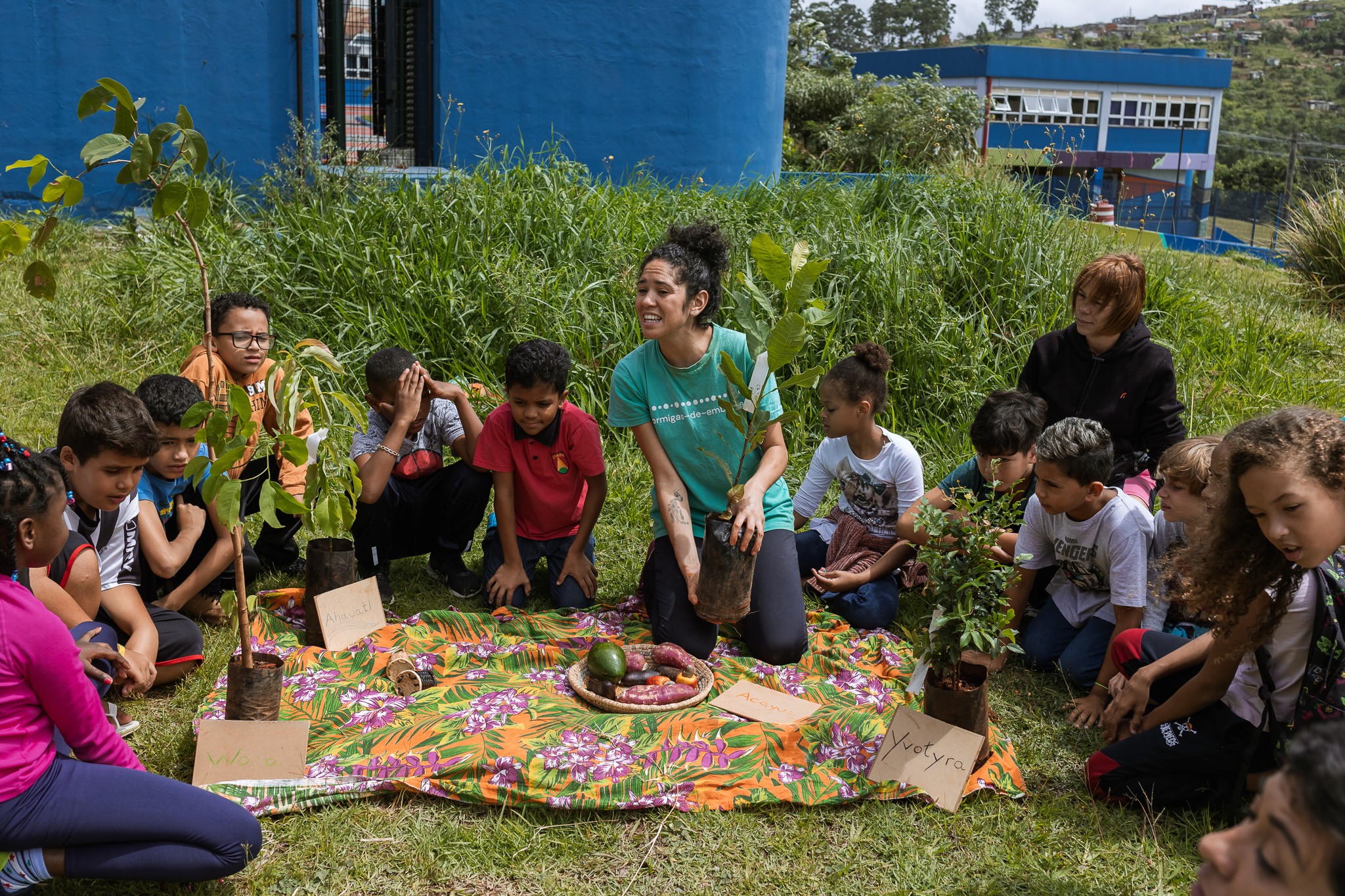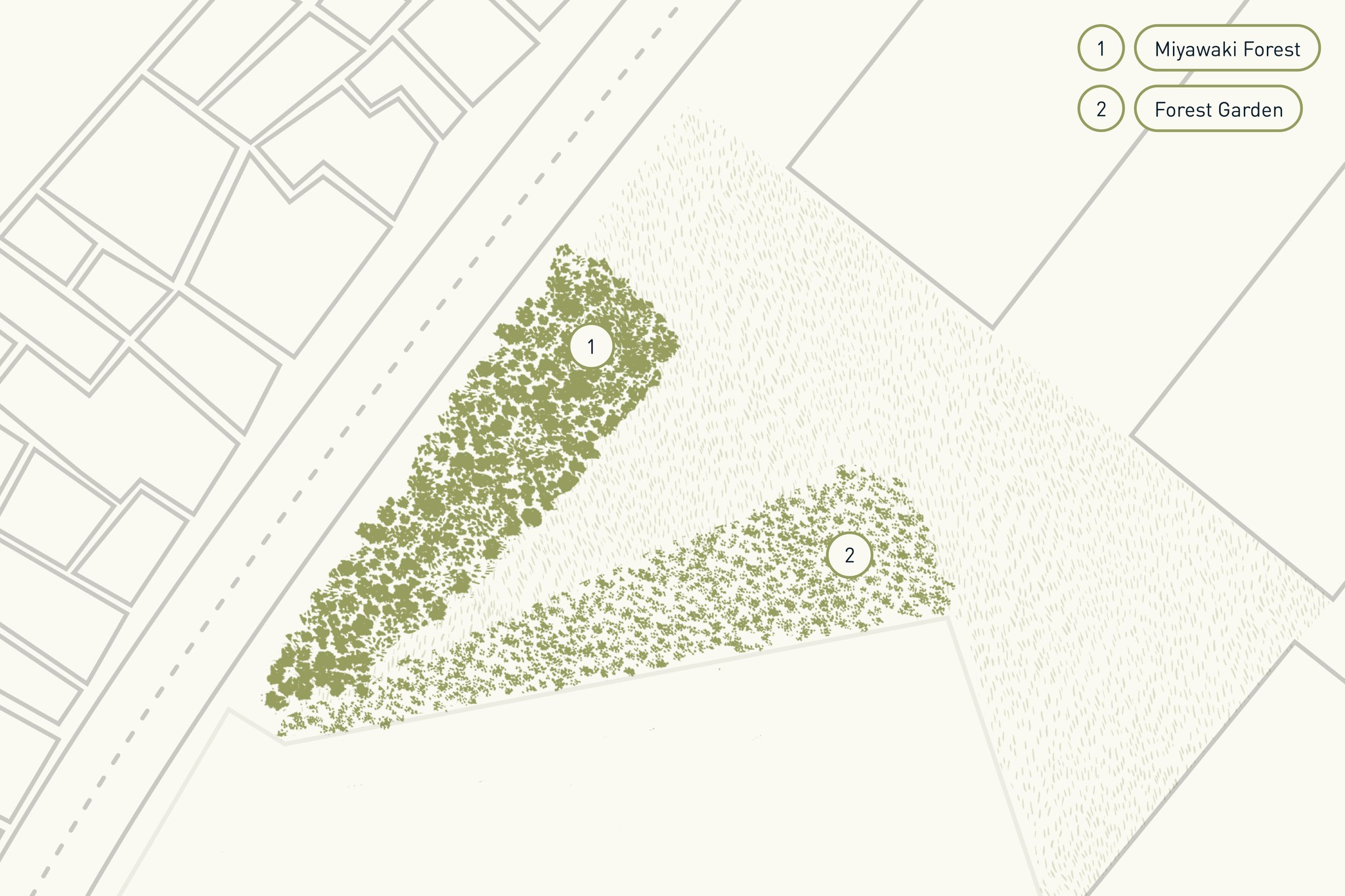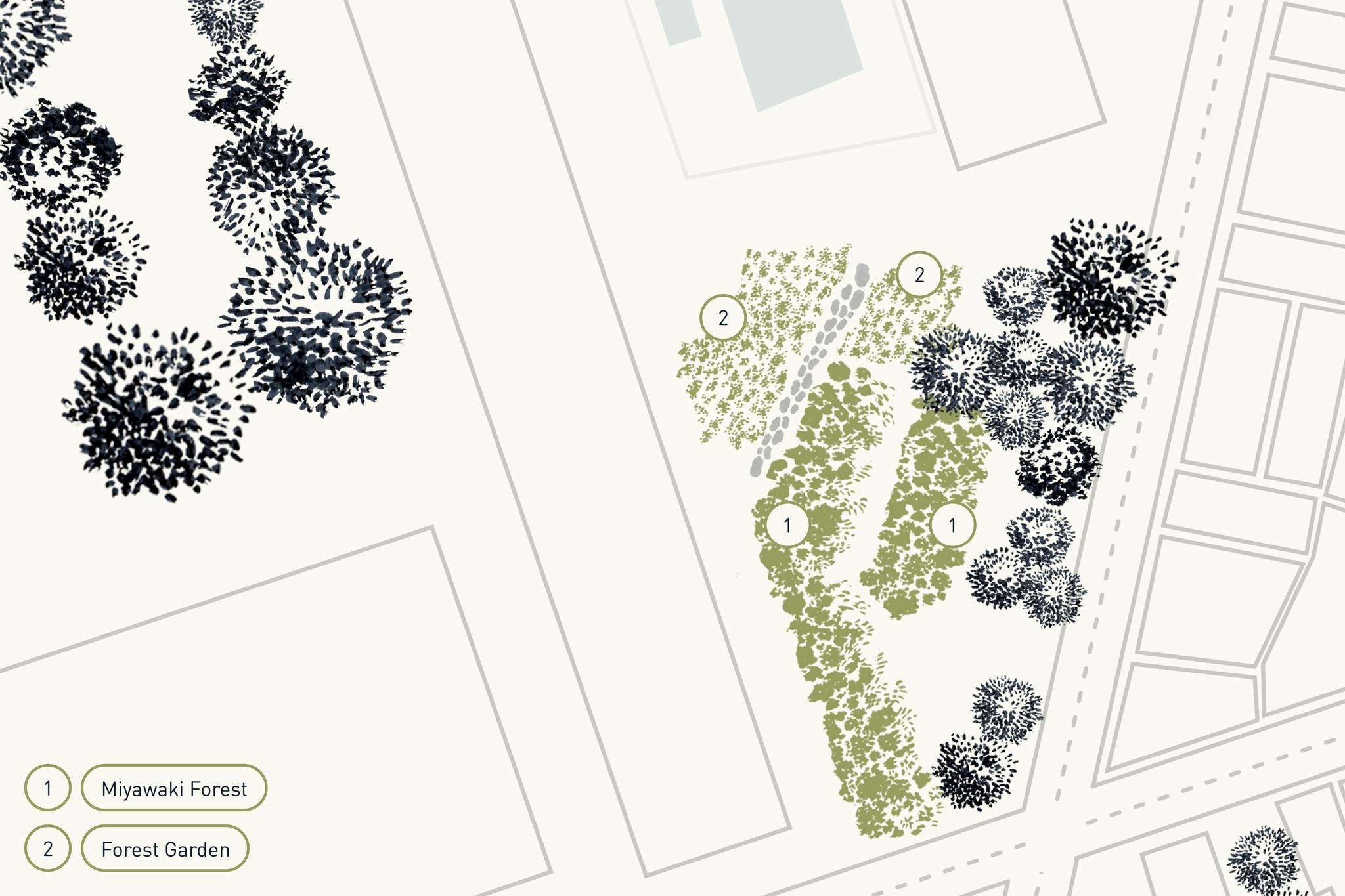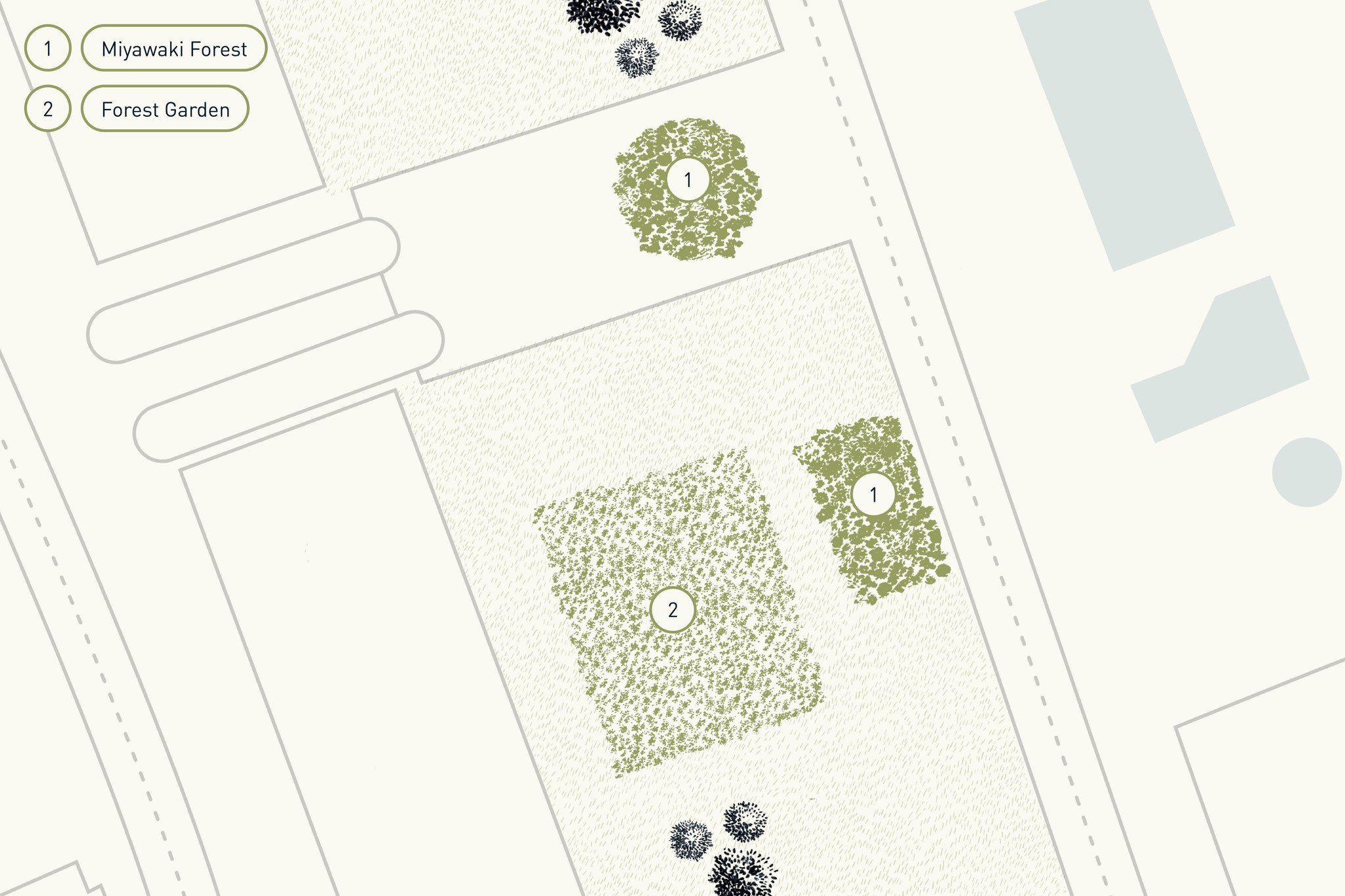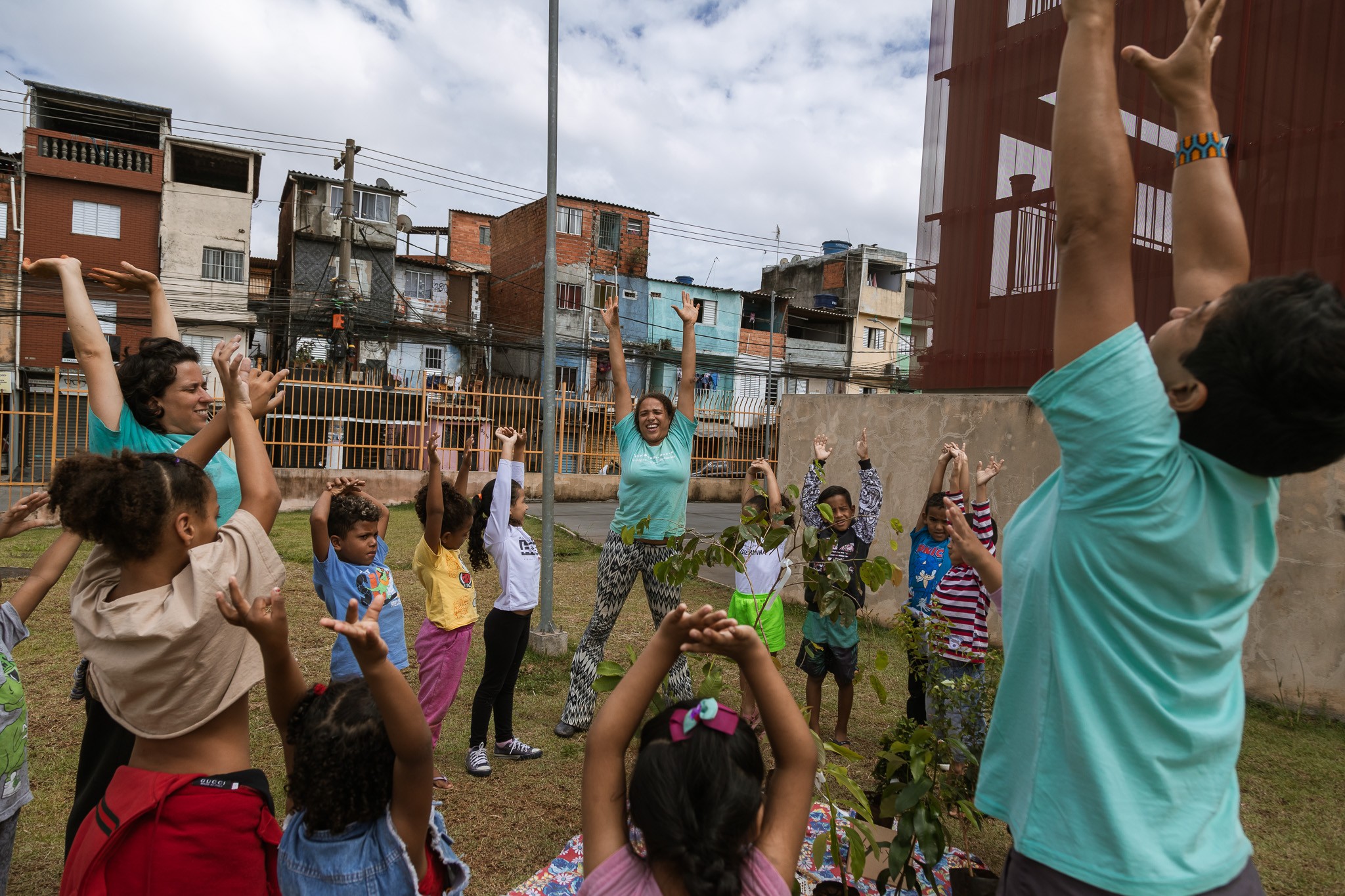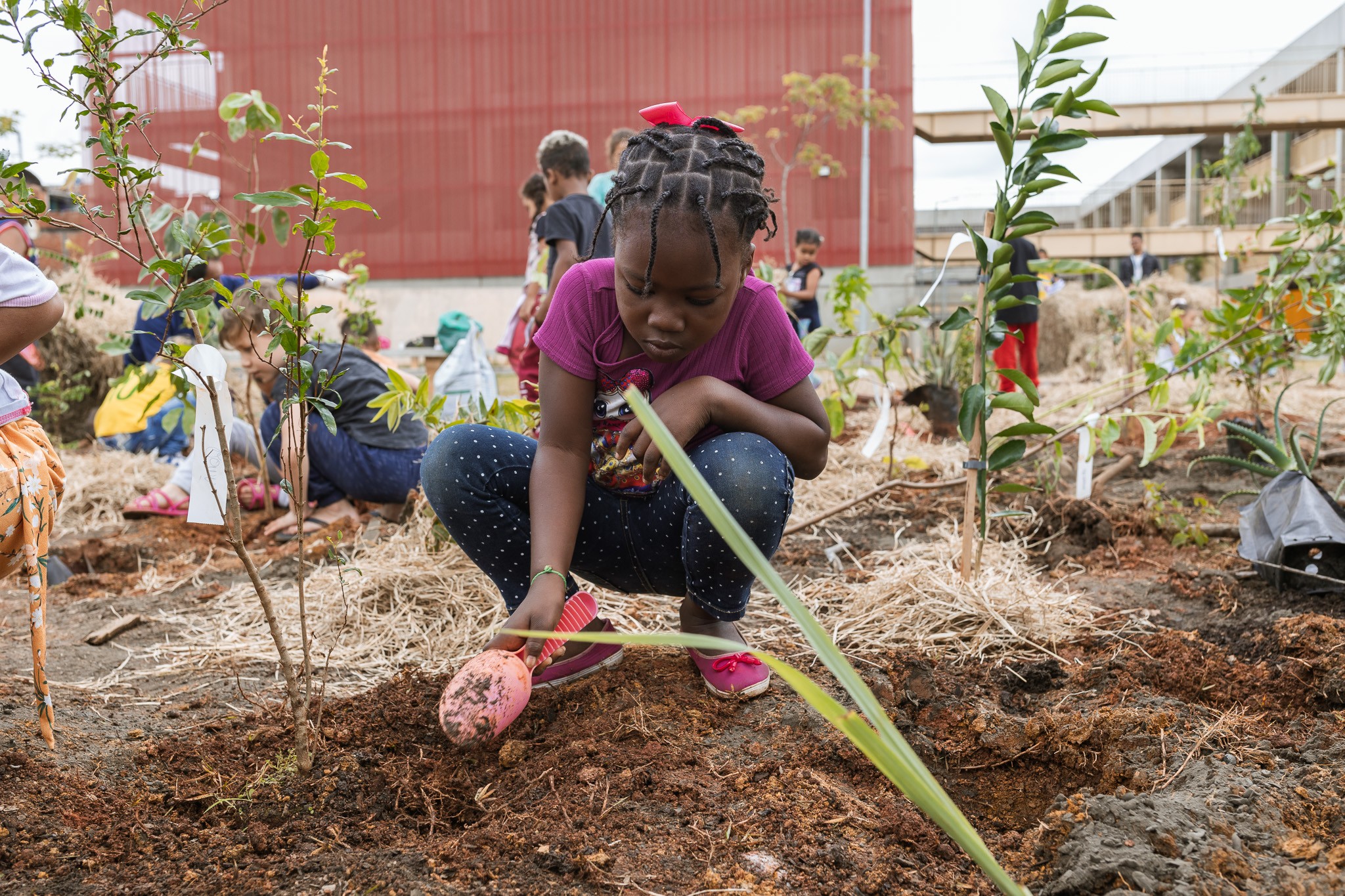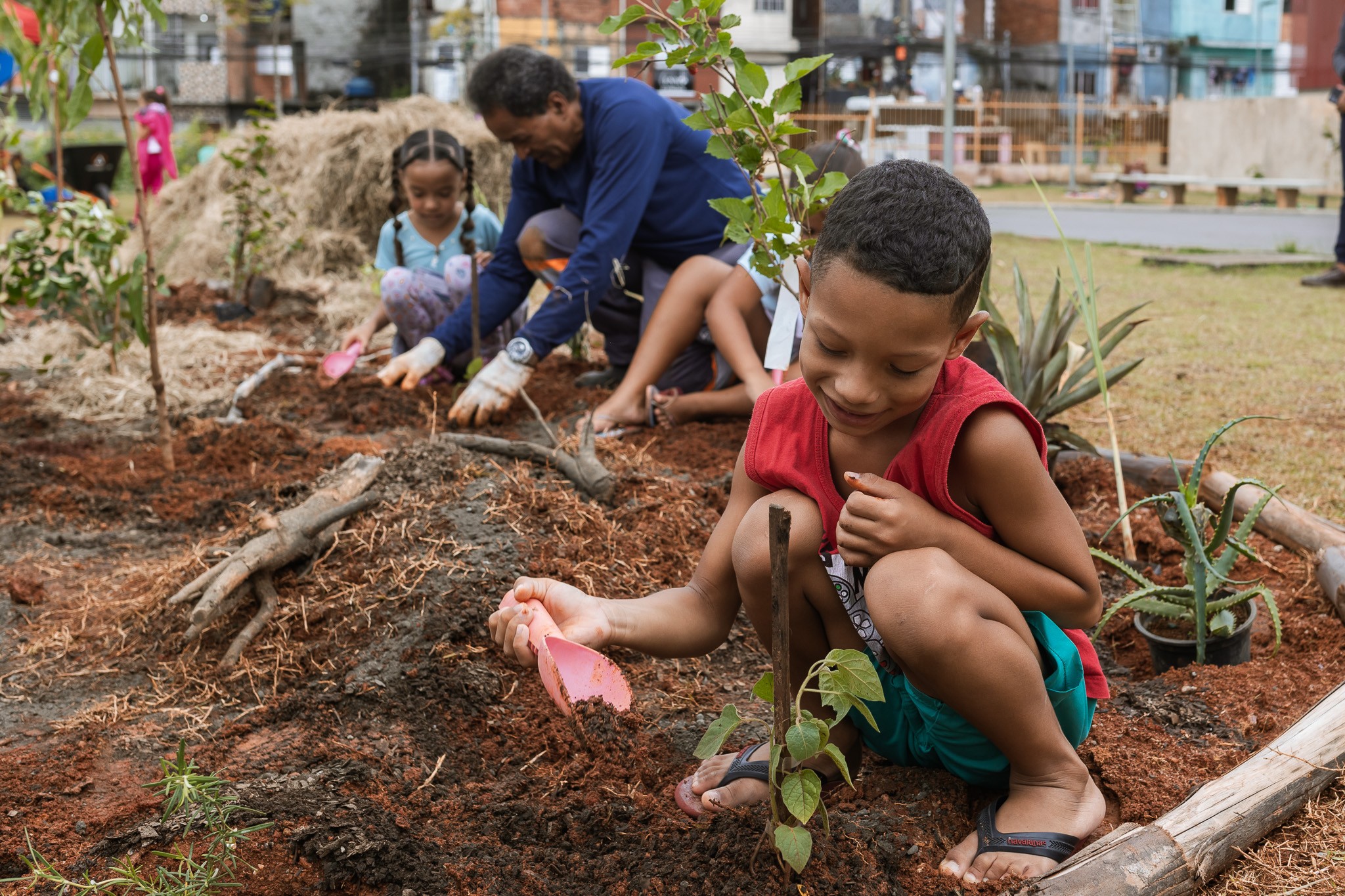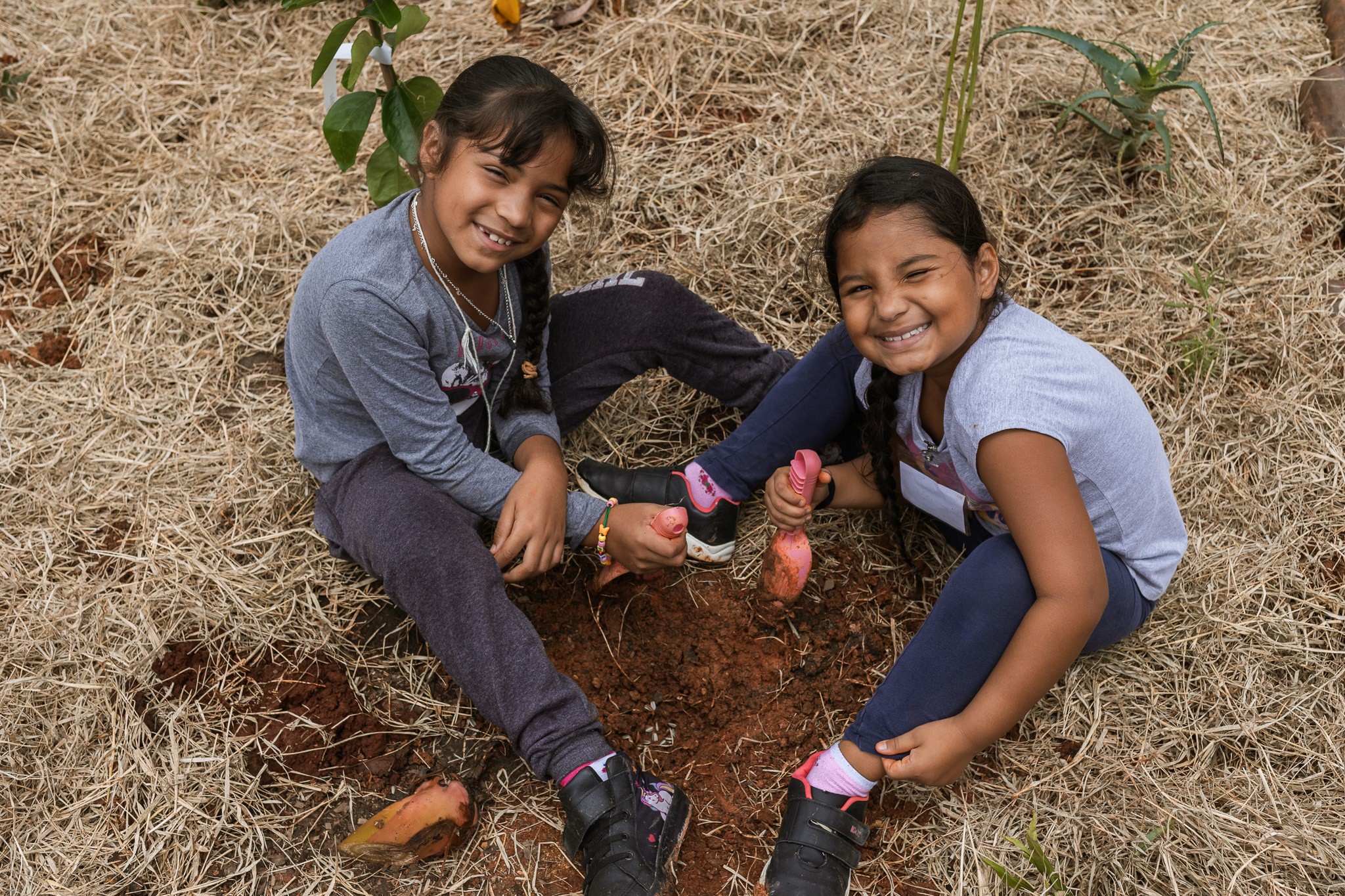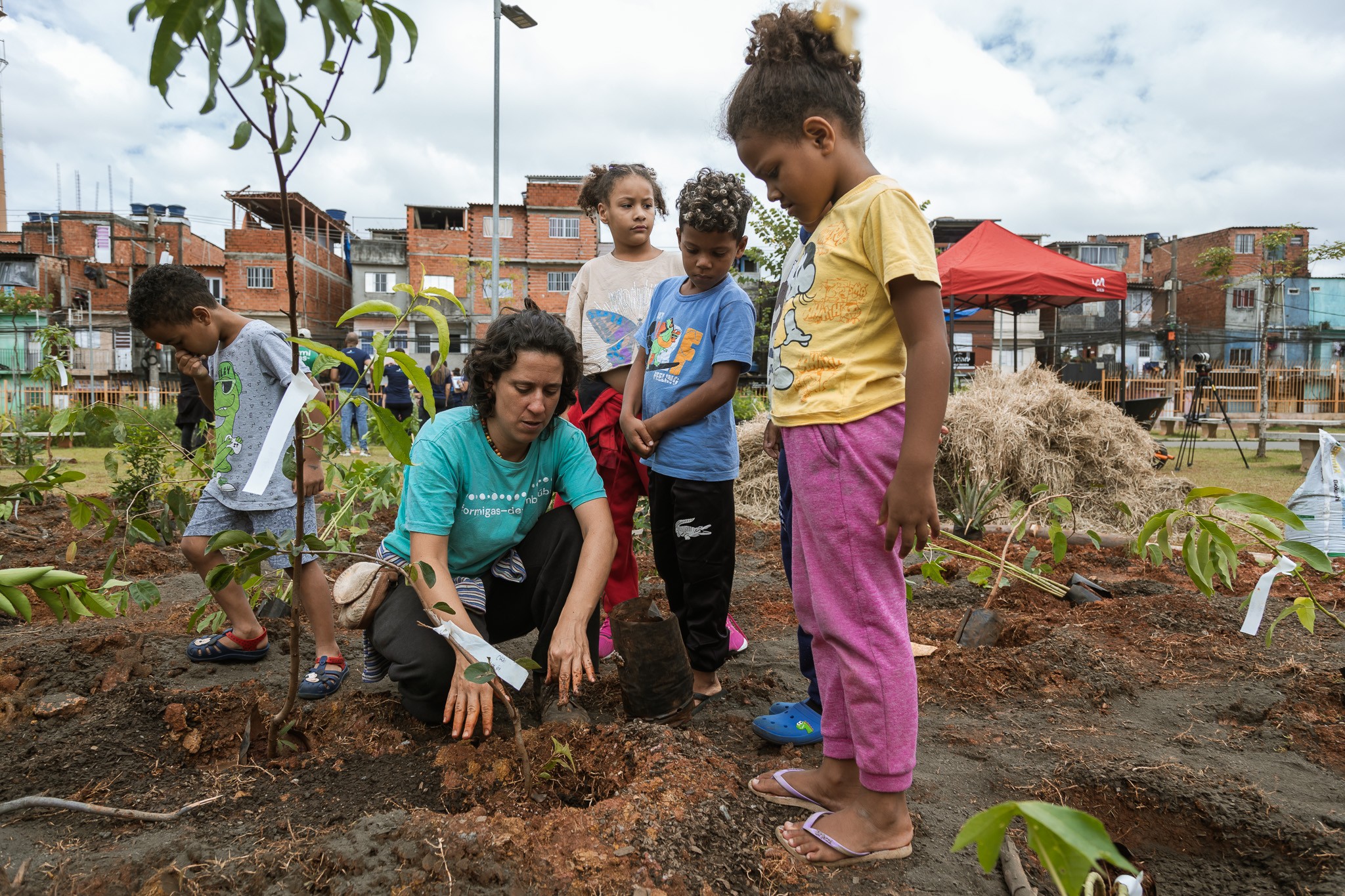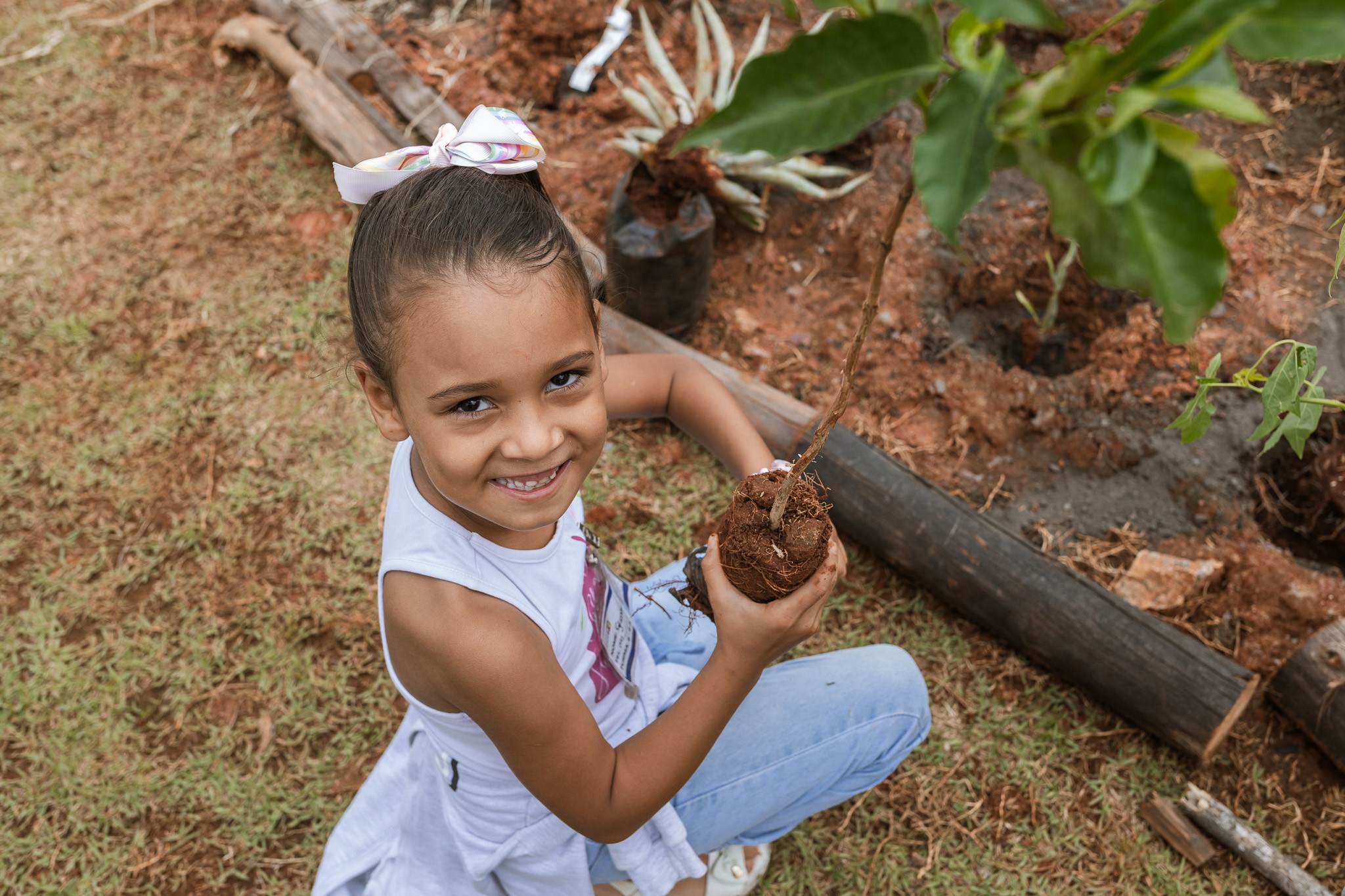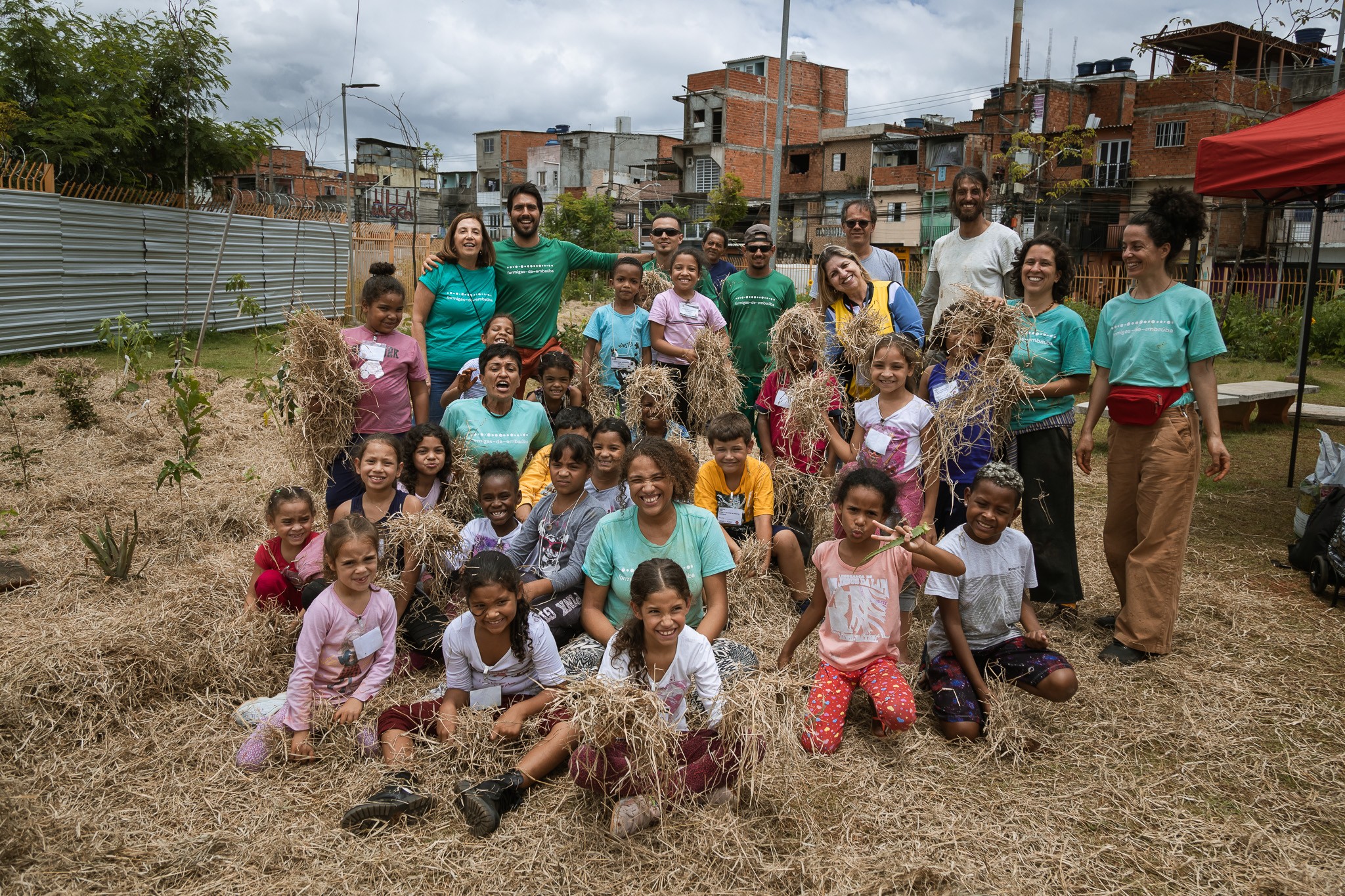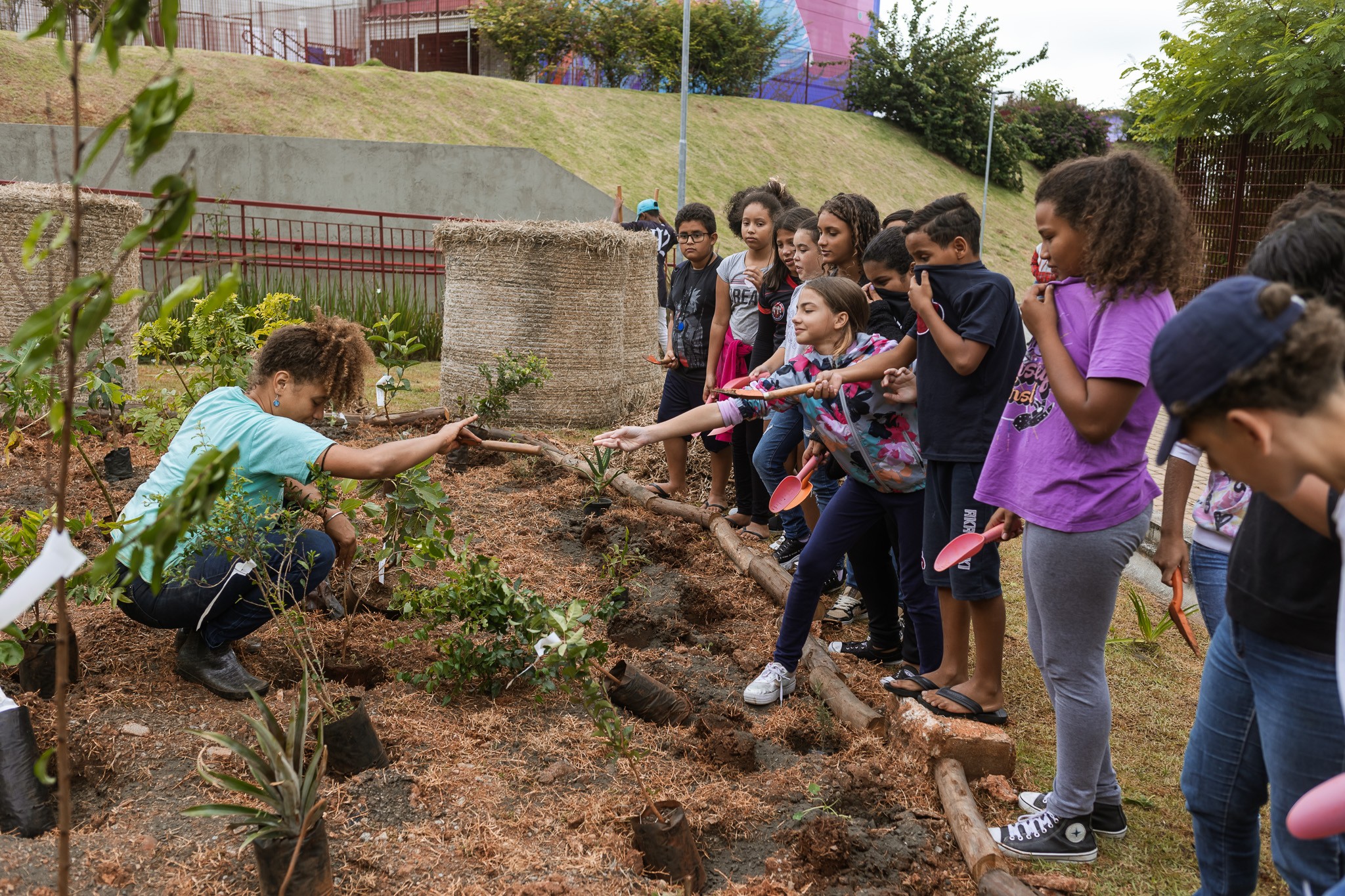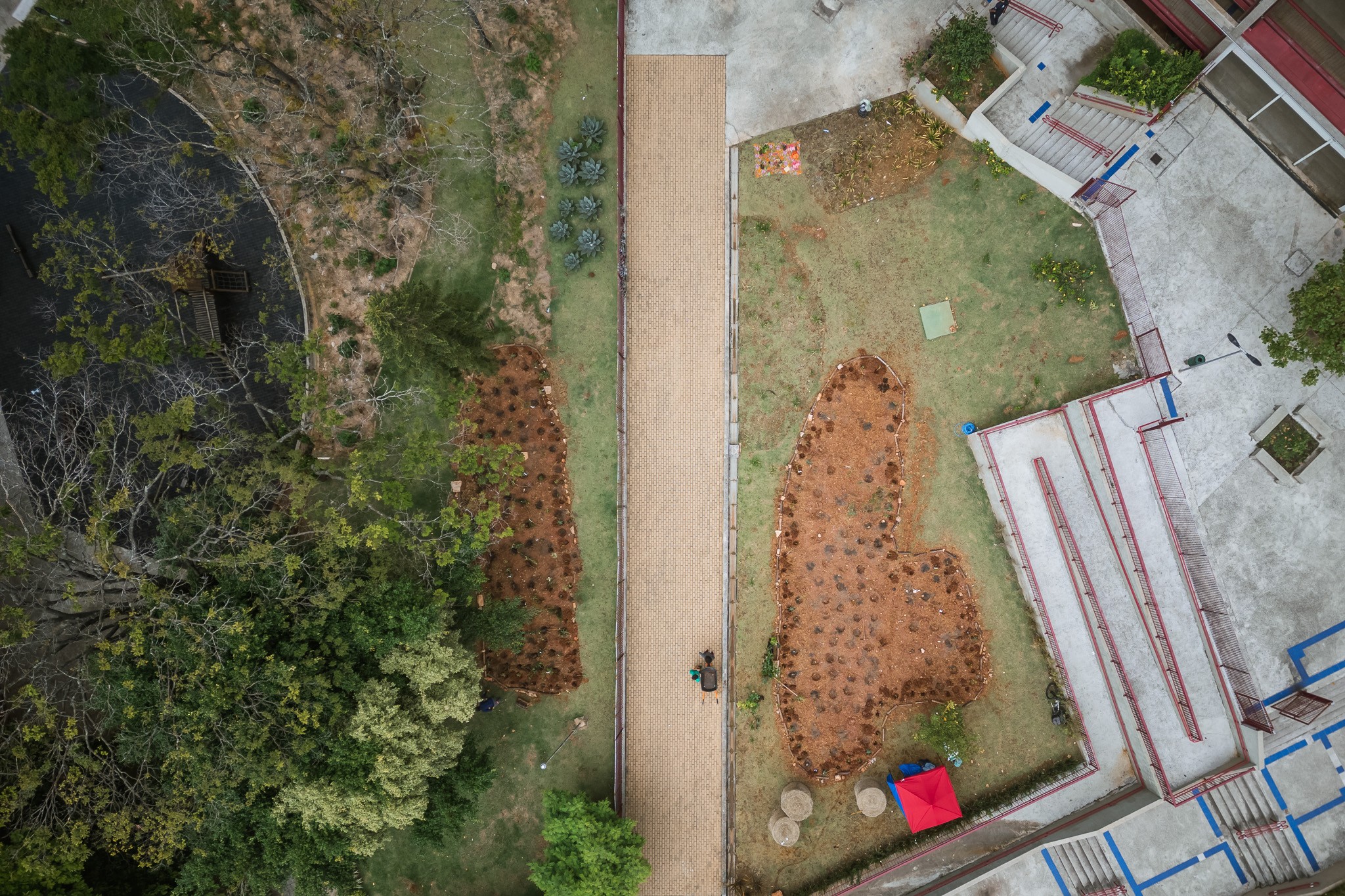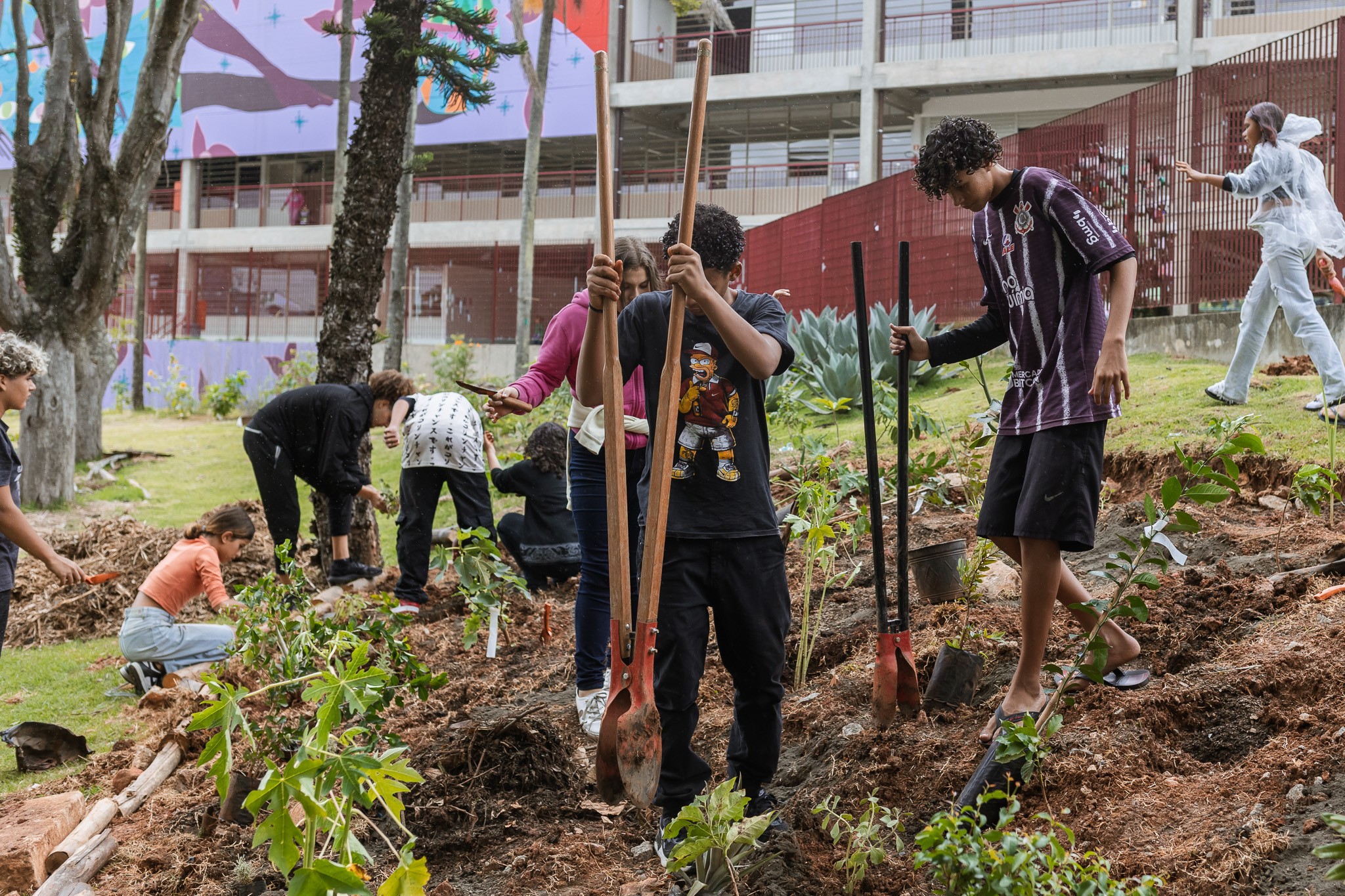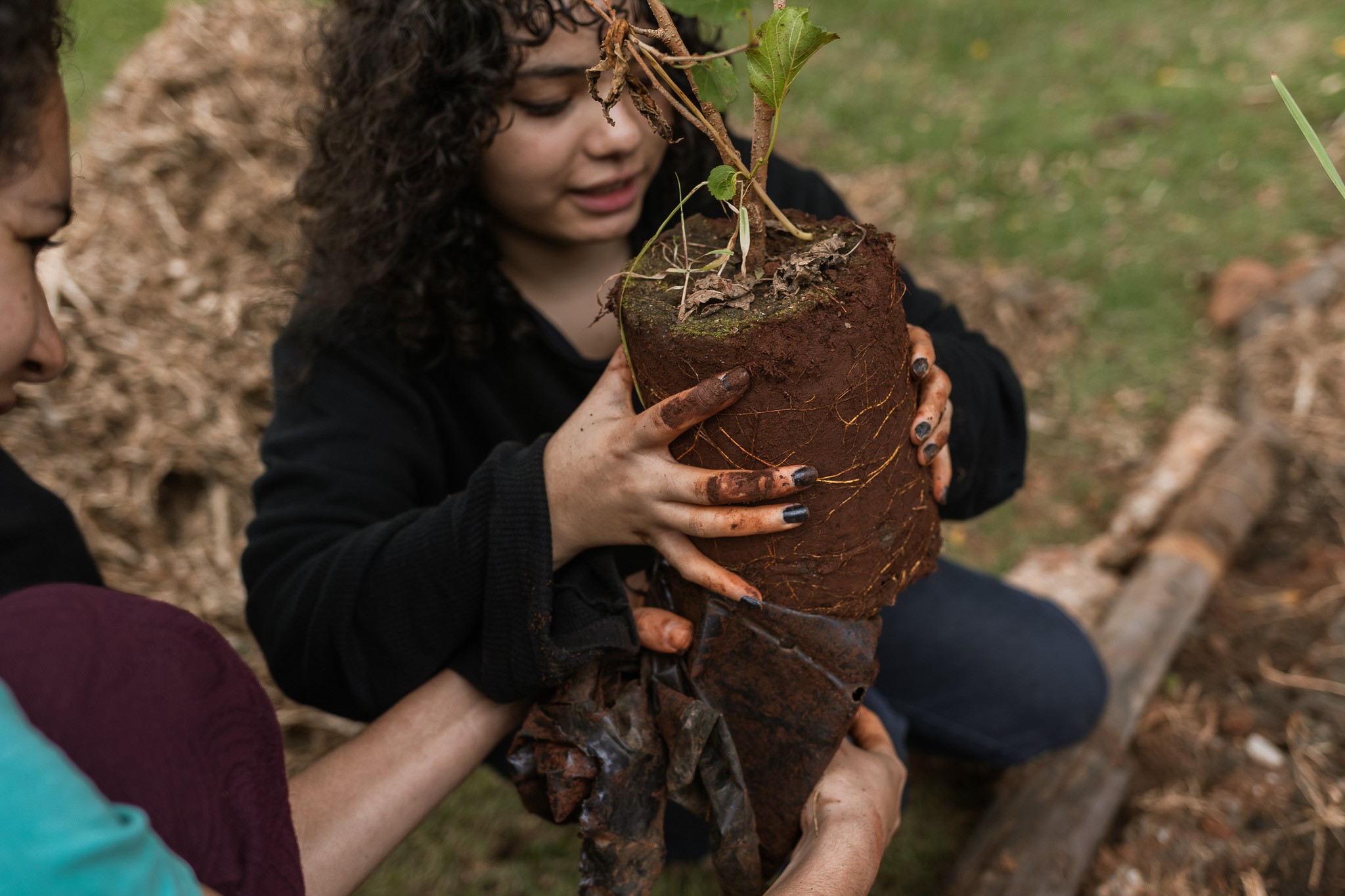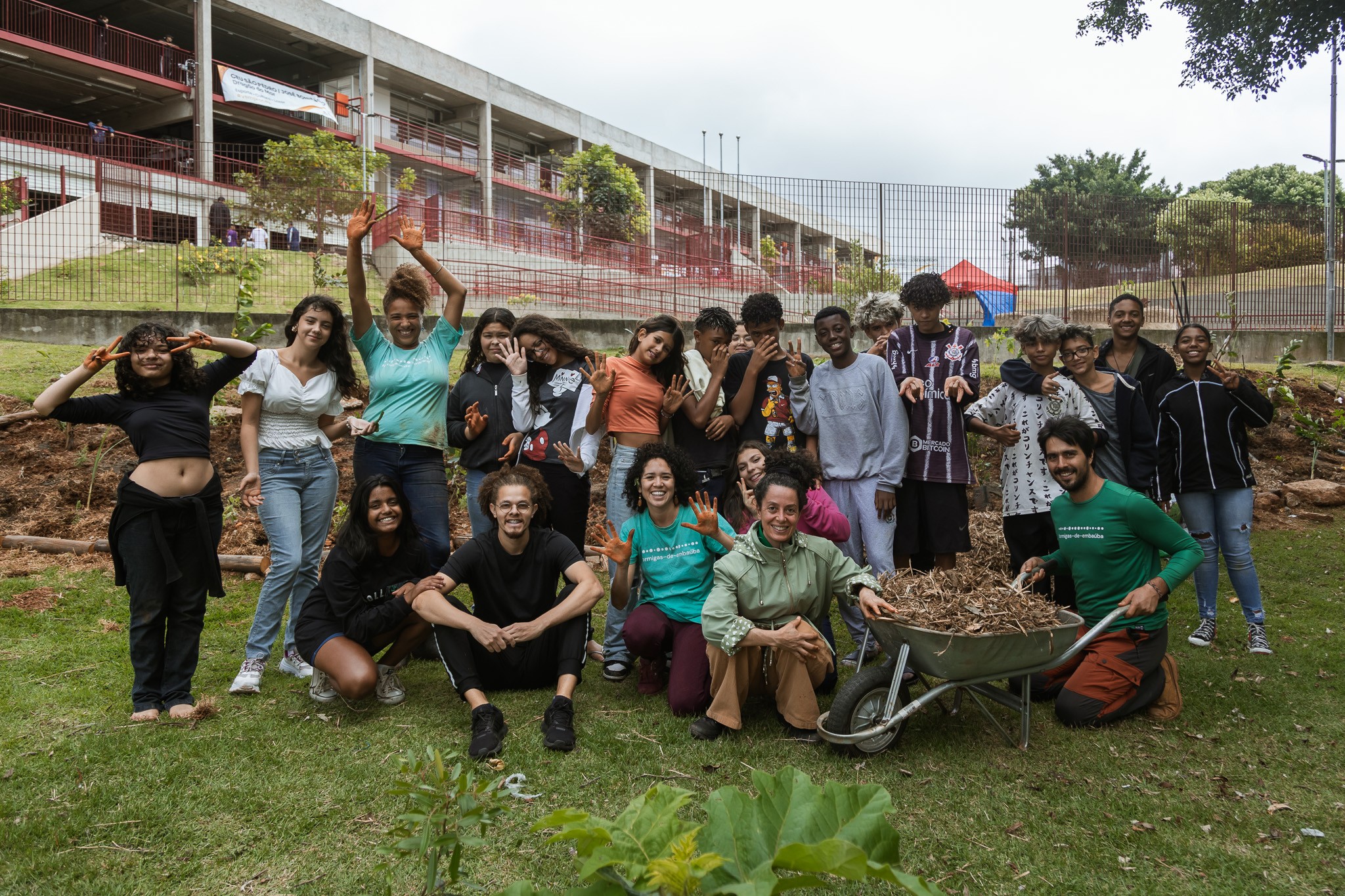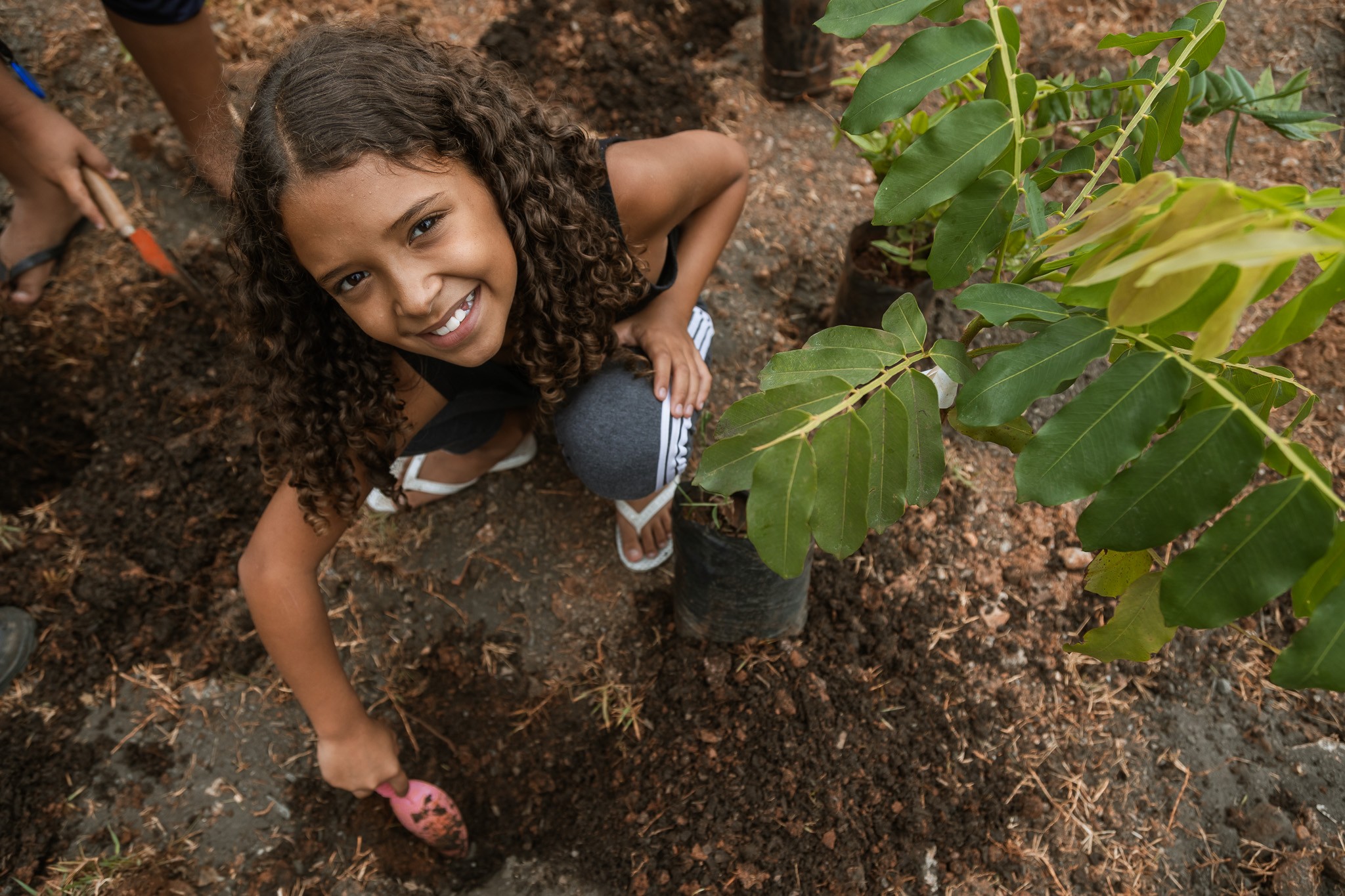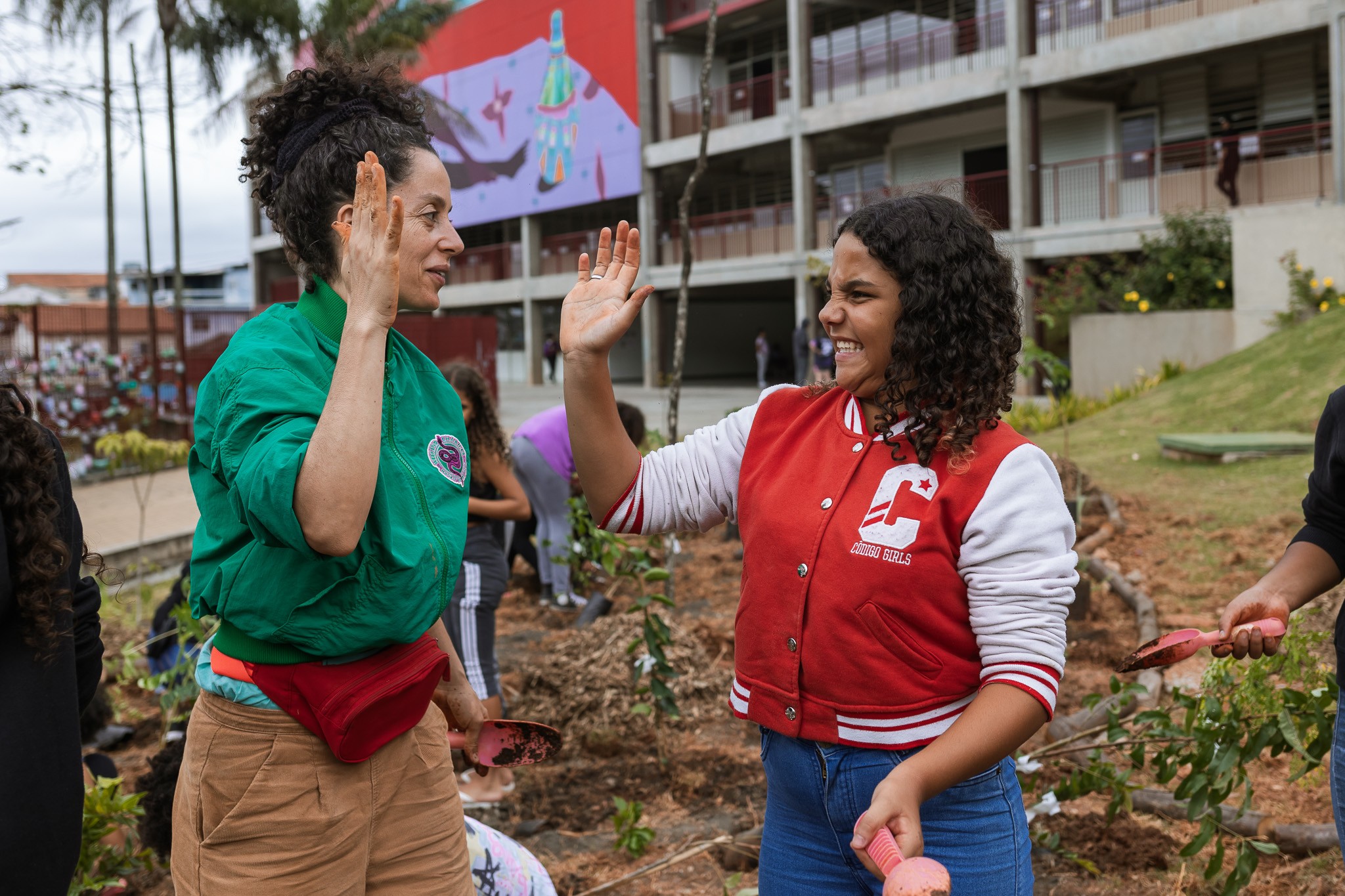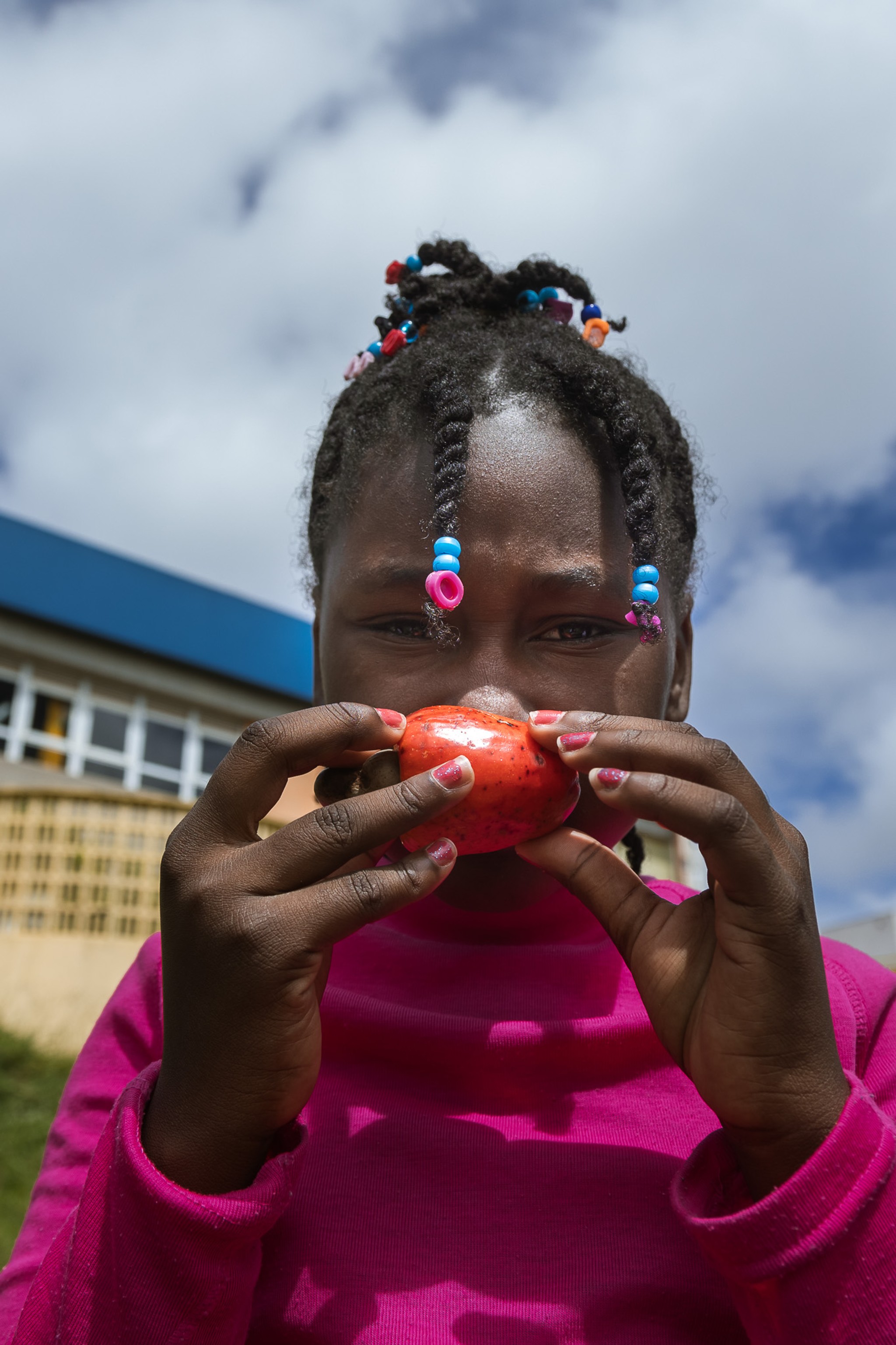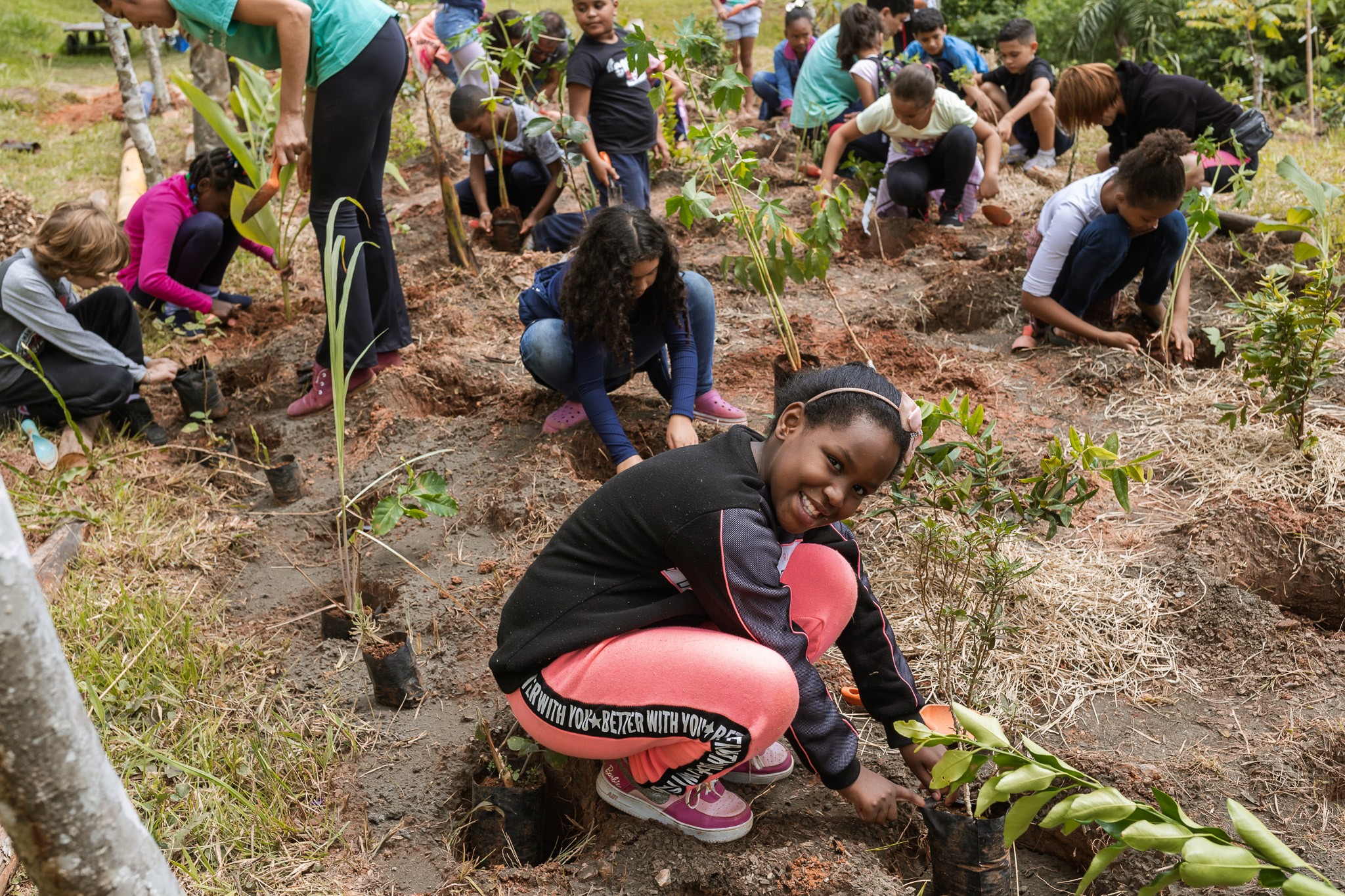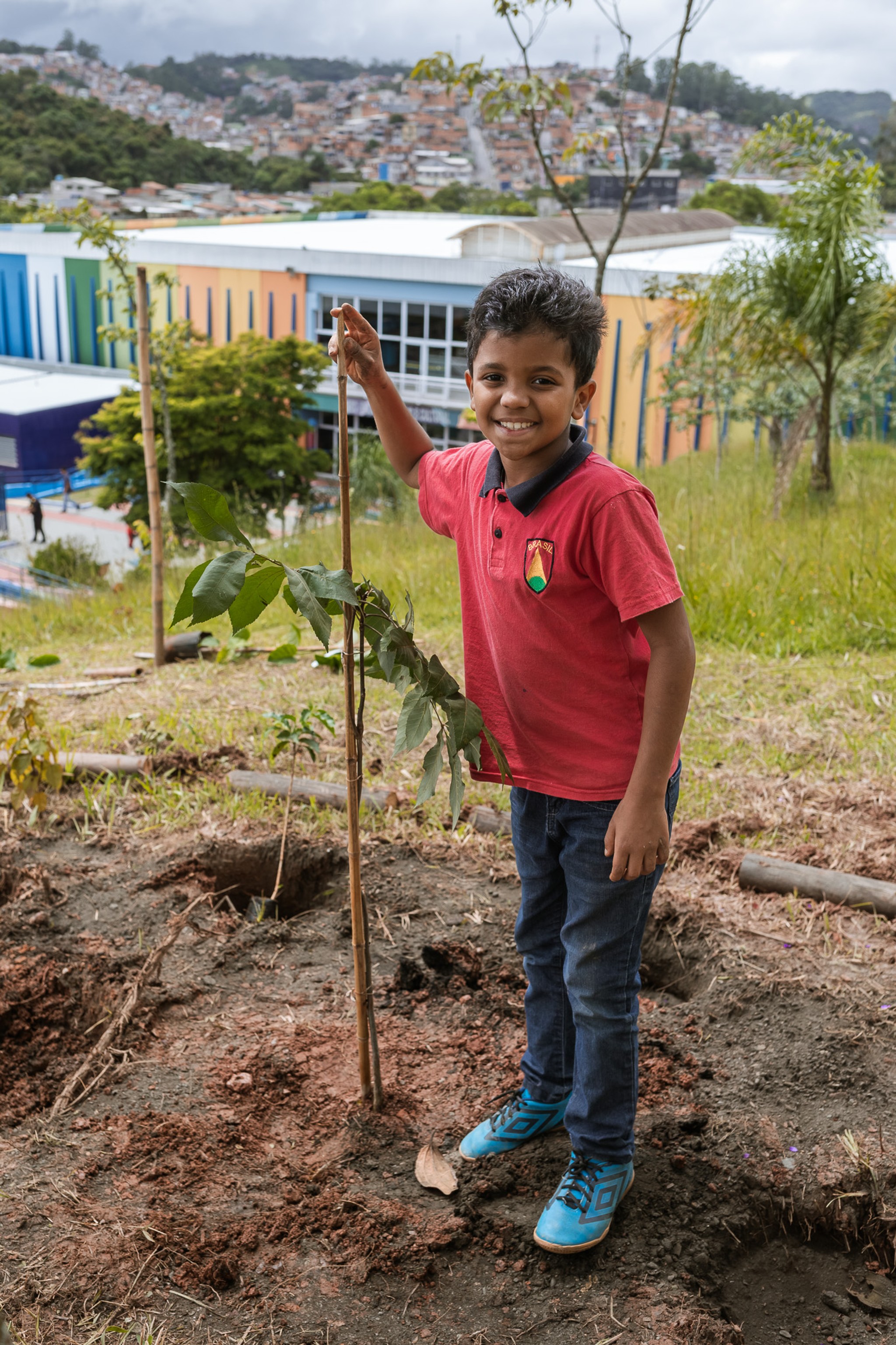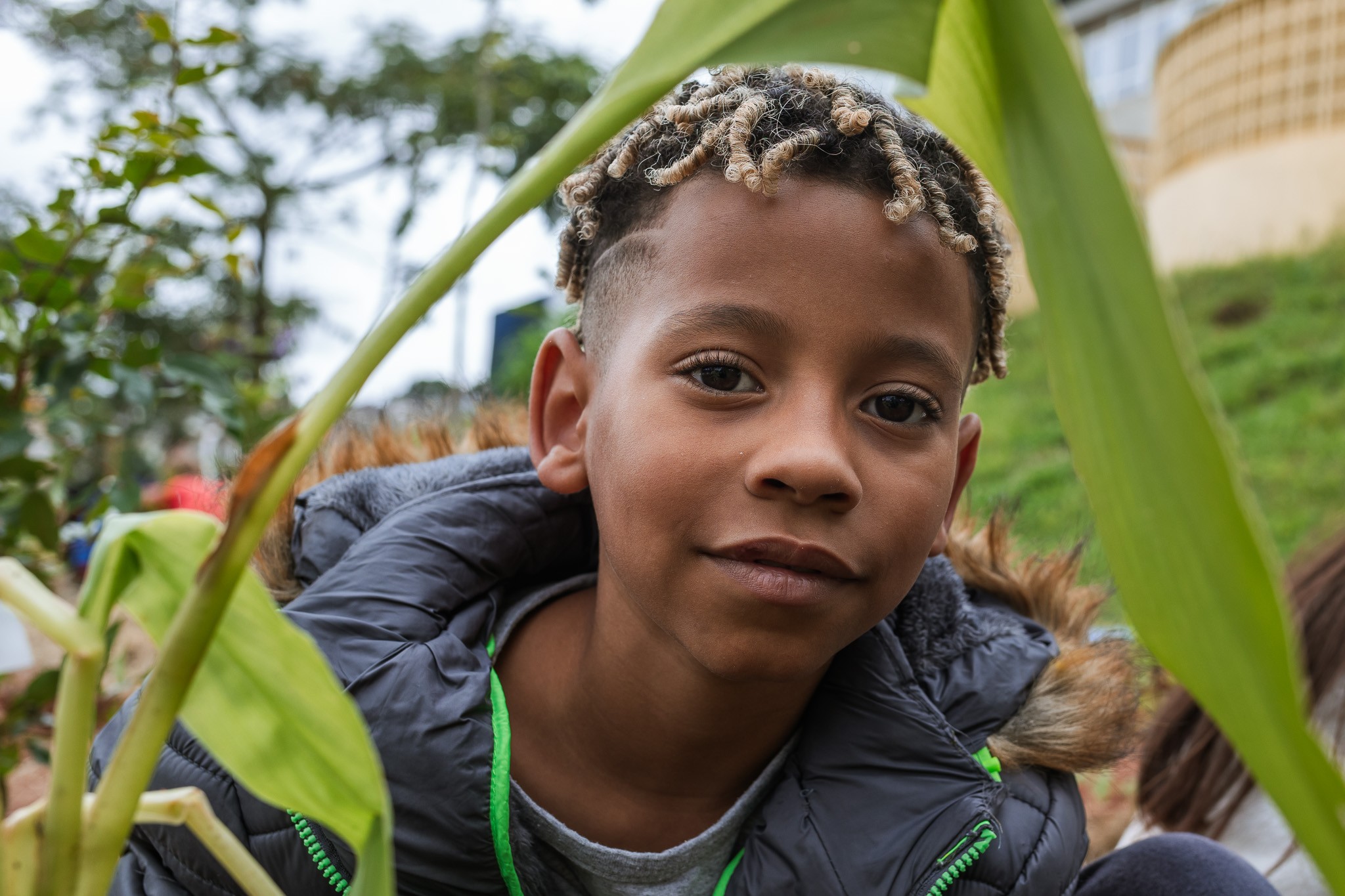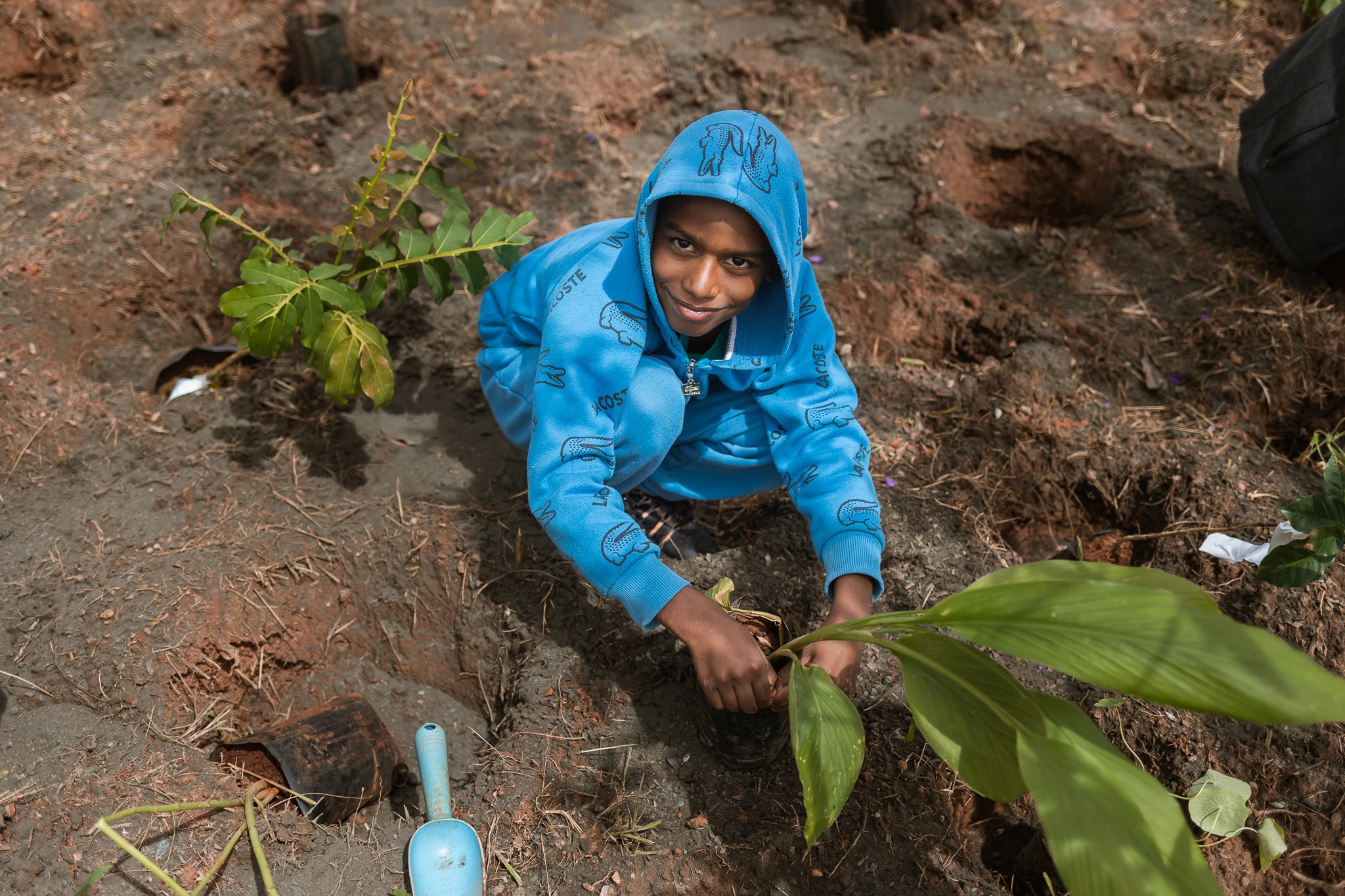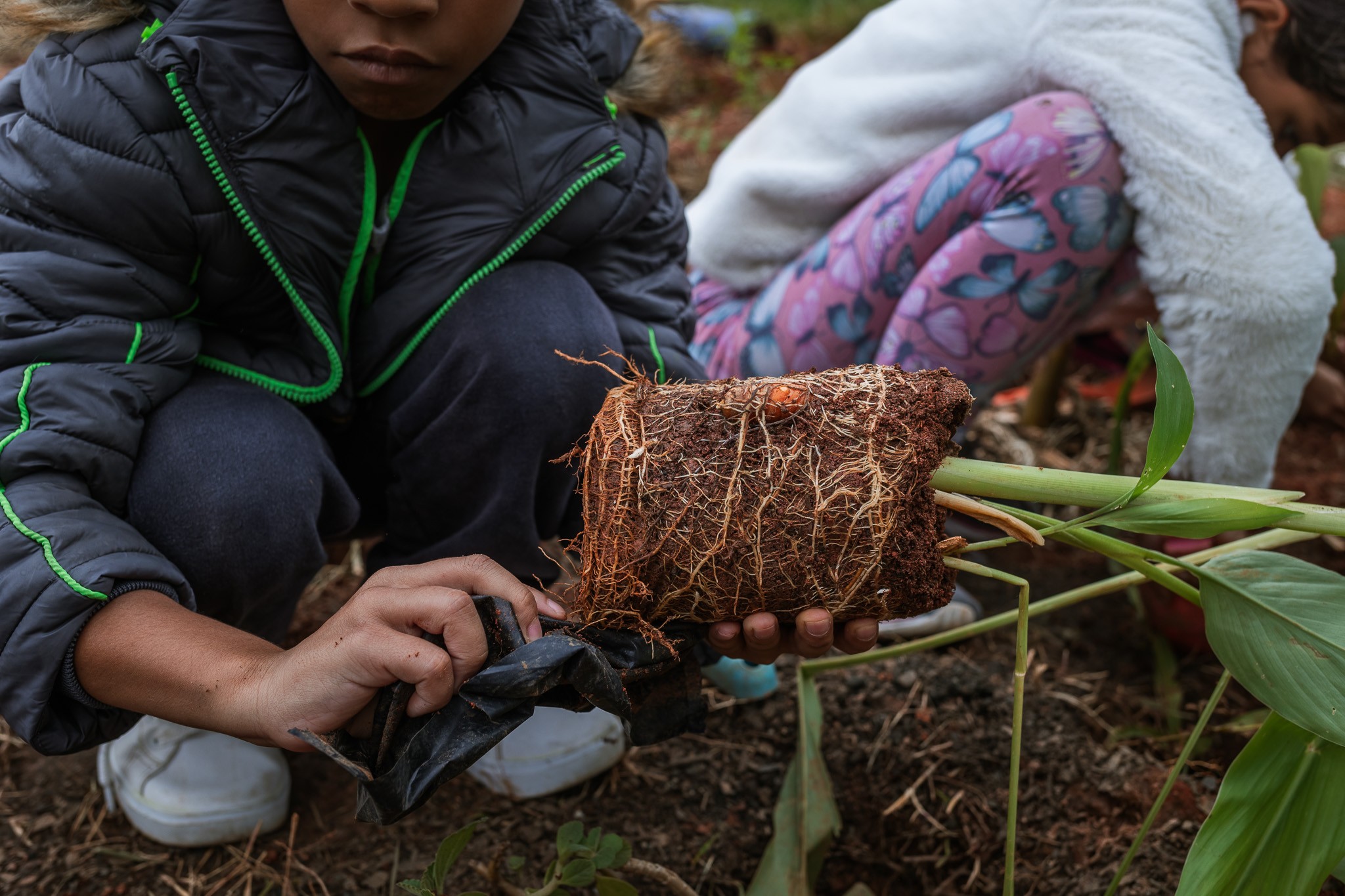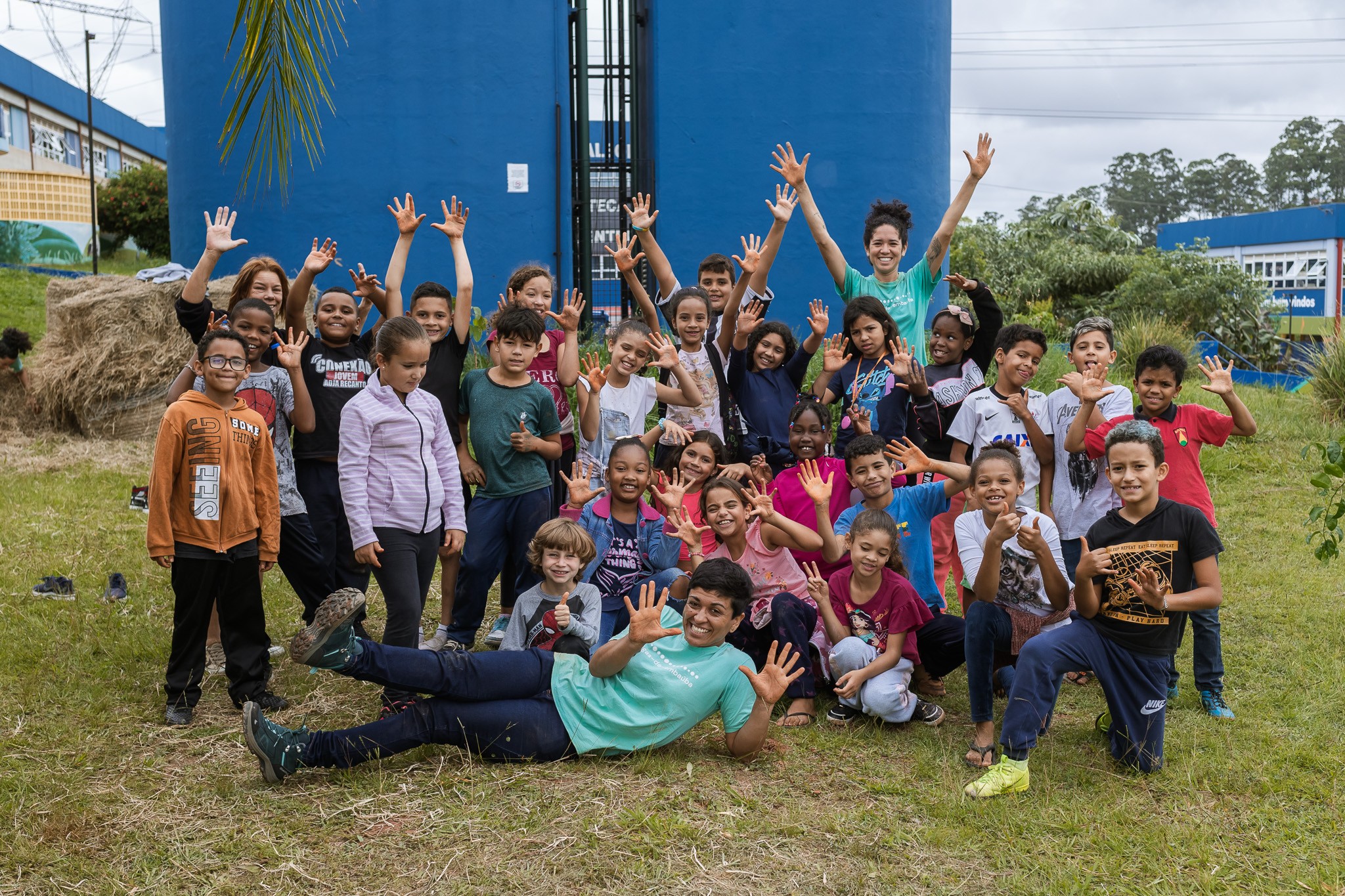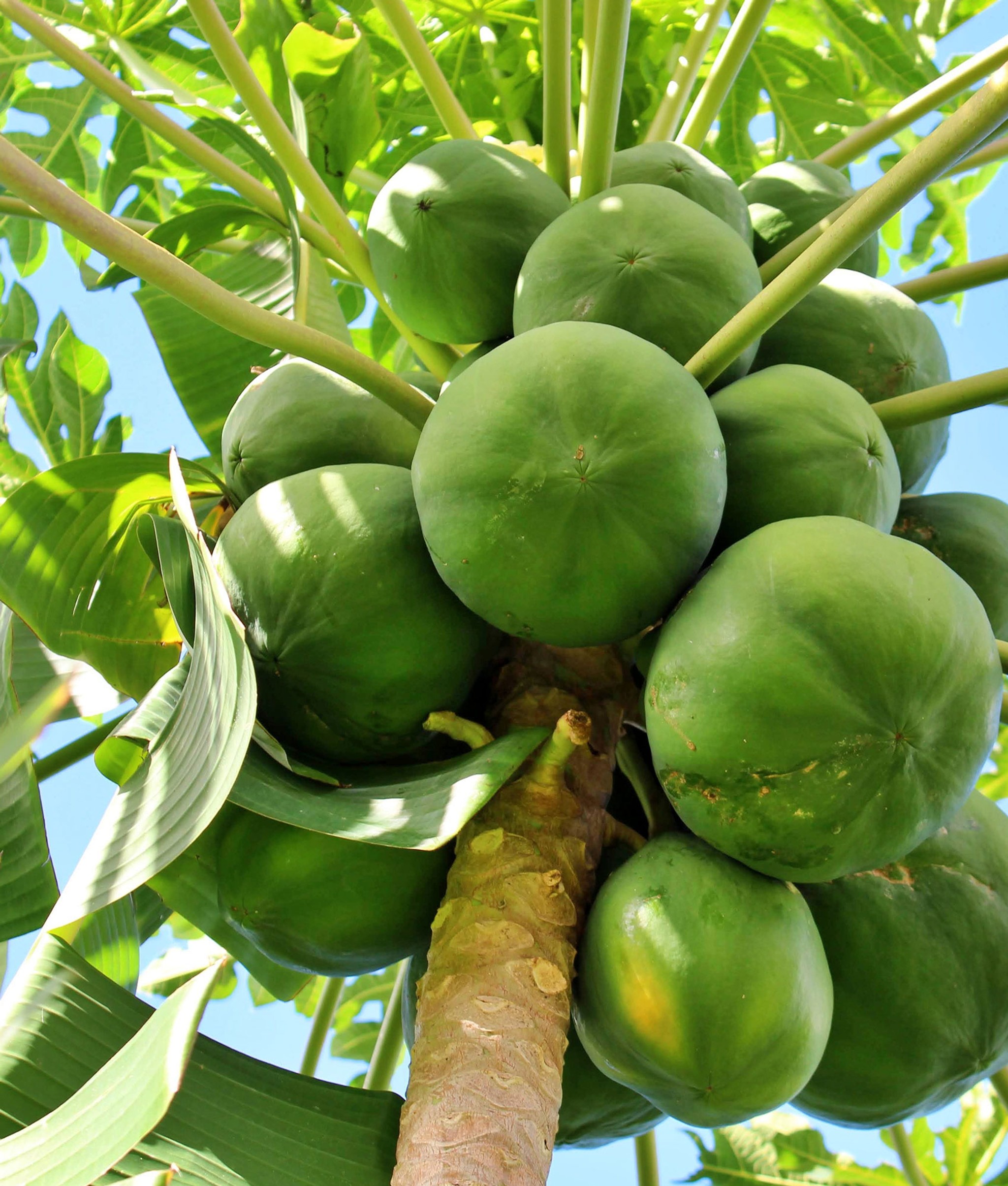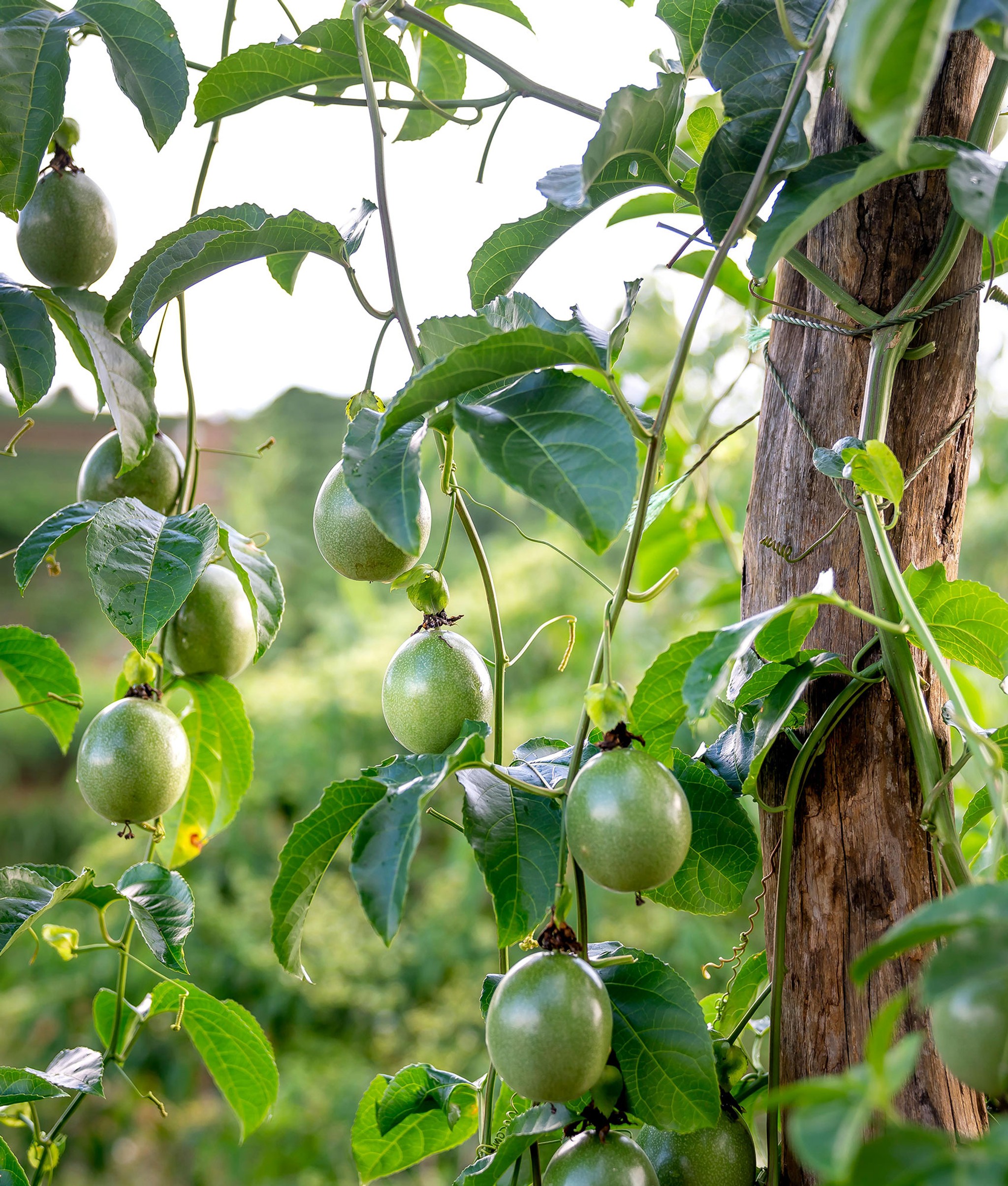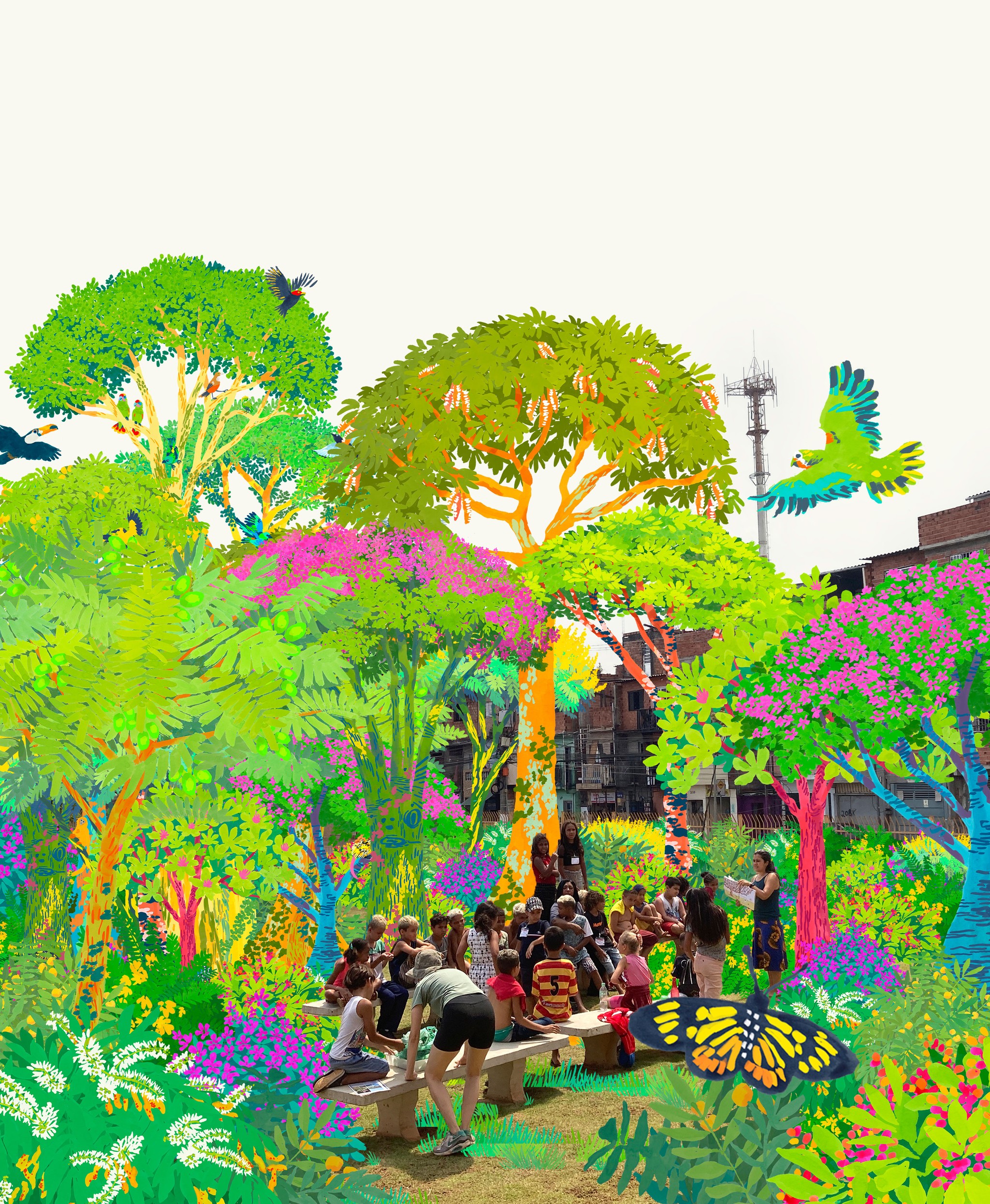School Forest Gardens
Nourishing communities with three Food Forests.

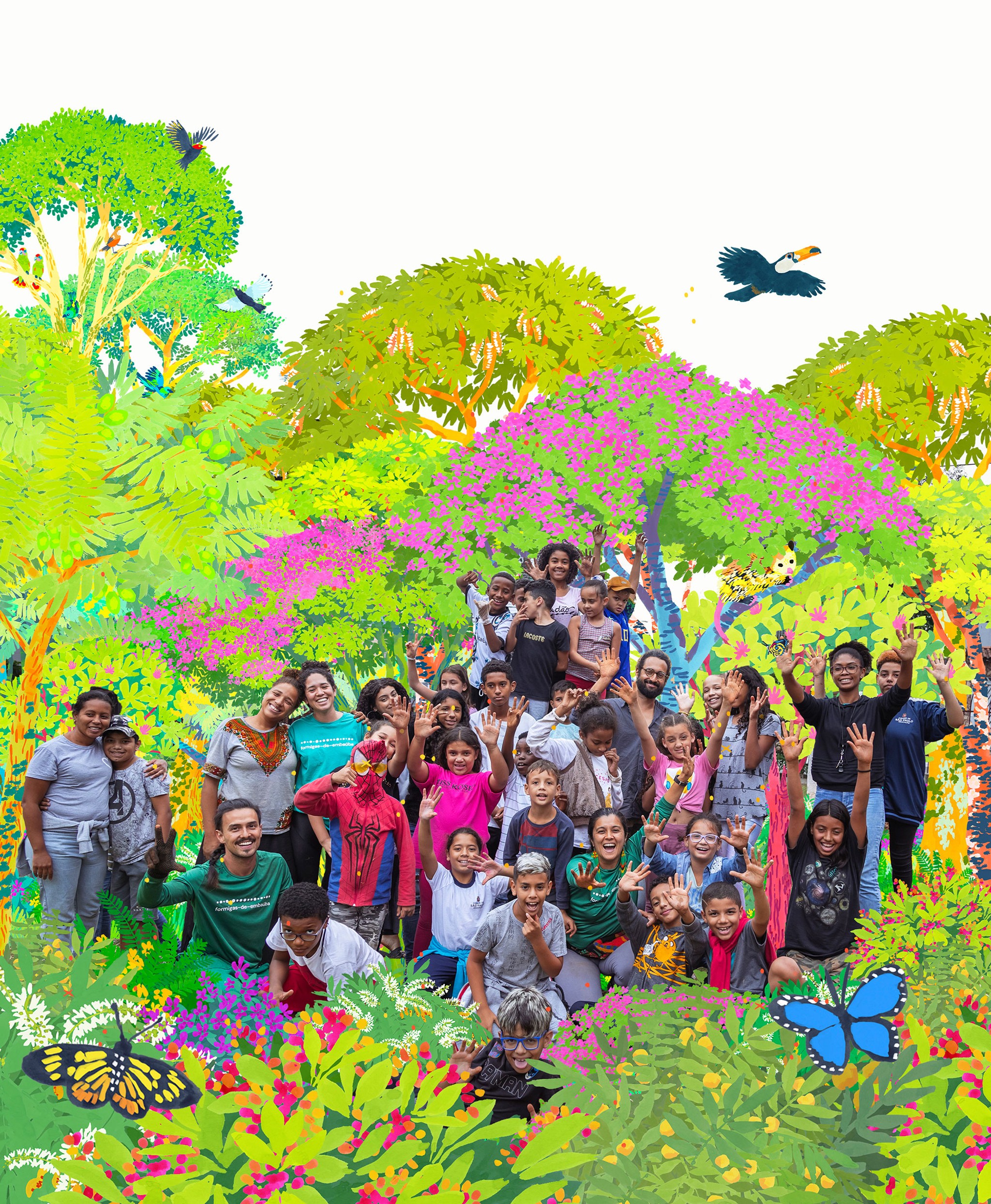
0
Trees, Shrub, Grasses & Vines
0
Square Meters
0
Native Species
0
Youth Impacted
In São Paulo's low-income communities, Unified Educational Centers (CEUs) serve as vital public hubs, offering free education, culture, and recreation. These centers cater to predominantly black and brown populations and play a crucial role in making essential services accessible. Each CEU encompasses three public schools, serving 1,000-3,000 students, fostering education from a young age through to adolescence.
The introduction of these three food forests, in three CEUs, aligns with an environmental education initiative. Over six months, teacher training aims to empower educators and school managers in adopting sustainable practices. The forests, integral to this program, serve as open-air classrooms, promoting direct contact with Nature. Beyond enhancing educational methodologies, these spaces convey knowledge about the native Atlantic Forest, local species, microclimates, and soil life.
This initiative transcends reforestation, fostering biodiversity conservation, ensuring food security, and providing relief during heat waves. By establishing these food forests, the project aspires to cultivate a sense of environmental responsibility in future generations, encouraging active participation in the regeneration of our planet.
Forest Maker
formigas-de-embaúba
Forest Partner


Forest Design
Forest Report: 2024
CEU Alto Alegre
0 Months
Forest Age
0%
Survival Rate
0m
Average of 3 Tallest Trees
The food forest is growing very well, with papaya trees (Carica sp.) standing out due to their growth and quantity. The peach trees (Prunus persica) and persimmon trees (Diospyros kaki) are leafless due to the winter dry season, but their branches and trunks are green, and buds are starting to form. Other trees that are developing include mulberry (Morus), jatobá (Hymenaea courbaril), and Couvetinga (Solanum mauritianum), which have spontaneously emerged in some areas of the forest.
Companion plants such as boldo, myrrh, basil, and carqueja are all growing vigorously and displaying abundant flowering. There is a great variety of birds visiting the forest, including the black coucal (Crotophaga ani), the little parrot (Brotogeris tirica), and the violet-crowned hummingbird (Colibri coruscans).
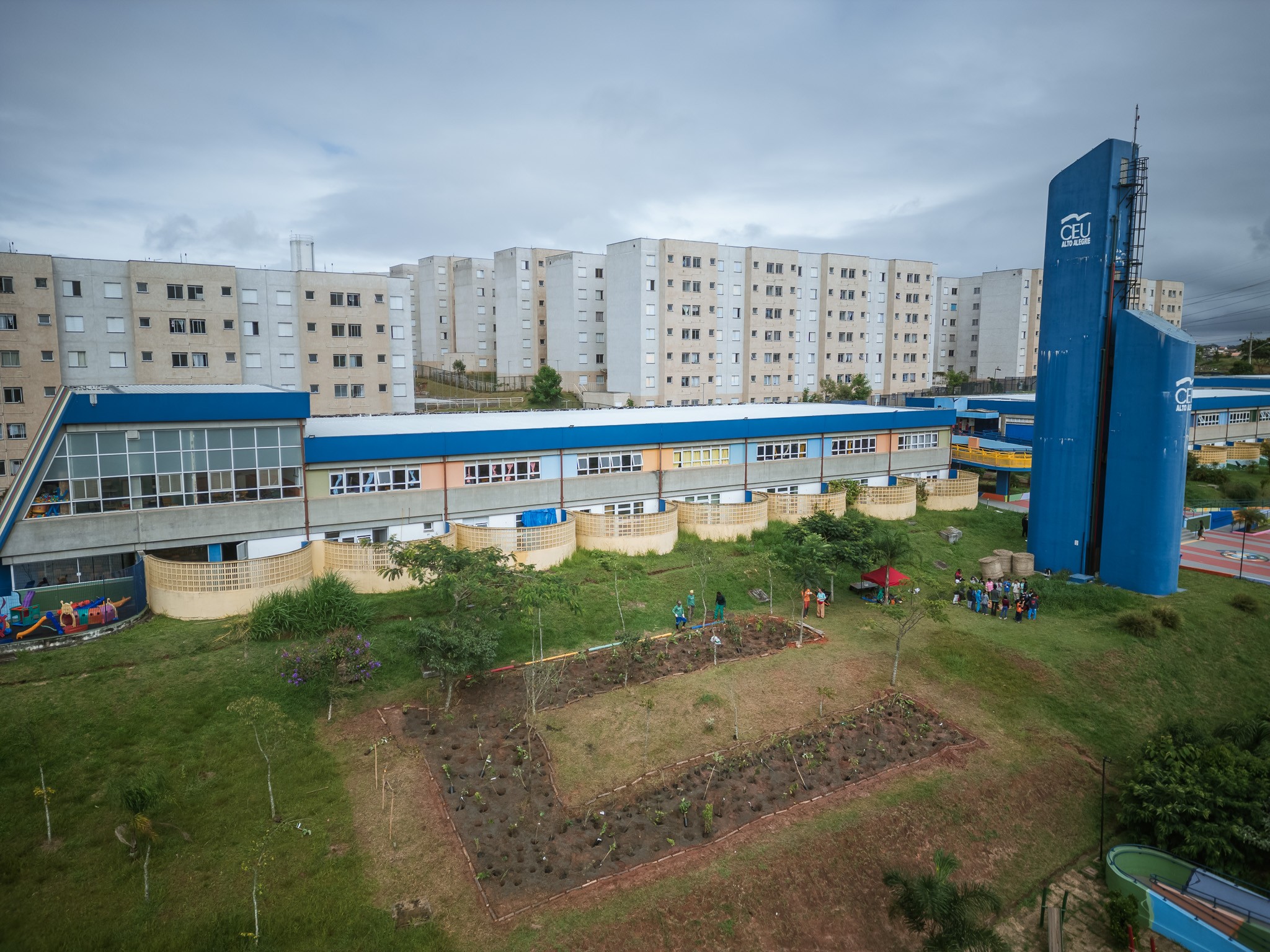

CEU José Bonifácio
0 Months
Forest Age
0%
Survival Rate
0m
Average of 3 Tallest Trees
This food forest has a striking appearance in its development, with abundant flowering and fruiting of companion herbaceous plants, especially cherry tomatoes, Camapu, and lavenders. Notable trees include some papayas (Carica papaya), the Jabuticaba (Hymenaea courbaril), and citrus trees. There are some more empty areas, so we will do some replanting in the upcoming rain season.


CEU Parque Novo Mundo
0 Months
Forest Age
0%
Survival Rate
0m
Average of 3 Tallest Trees
The food forest is greener after some winter rains - despite a dry season that was more severe than usual. Many trees resumed their growth season, particularly the citrus trees. The castor oil plants and banana plants are contributing significantly to the foliage volume in the landscape, and lower herbs such as basil, Chilean boldo, and hog peanut are growing in considerable volume. People are interacting with the forest, collecting herbs for tea and medicine. In general, these food forests will show a slower growth pace when compared to the native forests, as the food forests are formed mostly by slow growth fruit or nut trees.
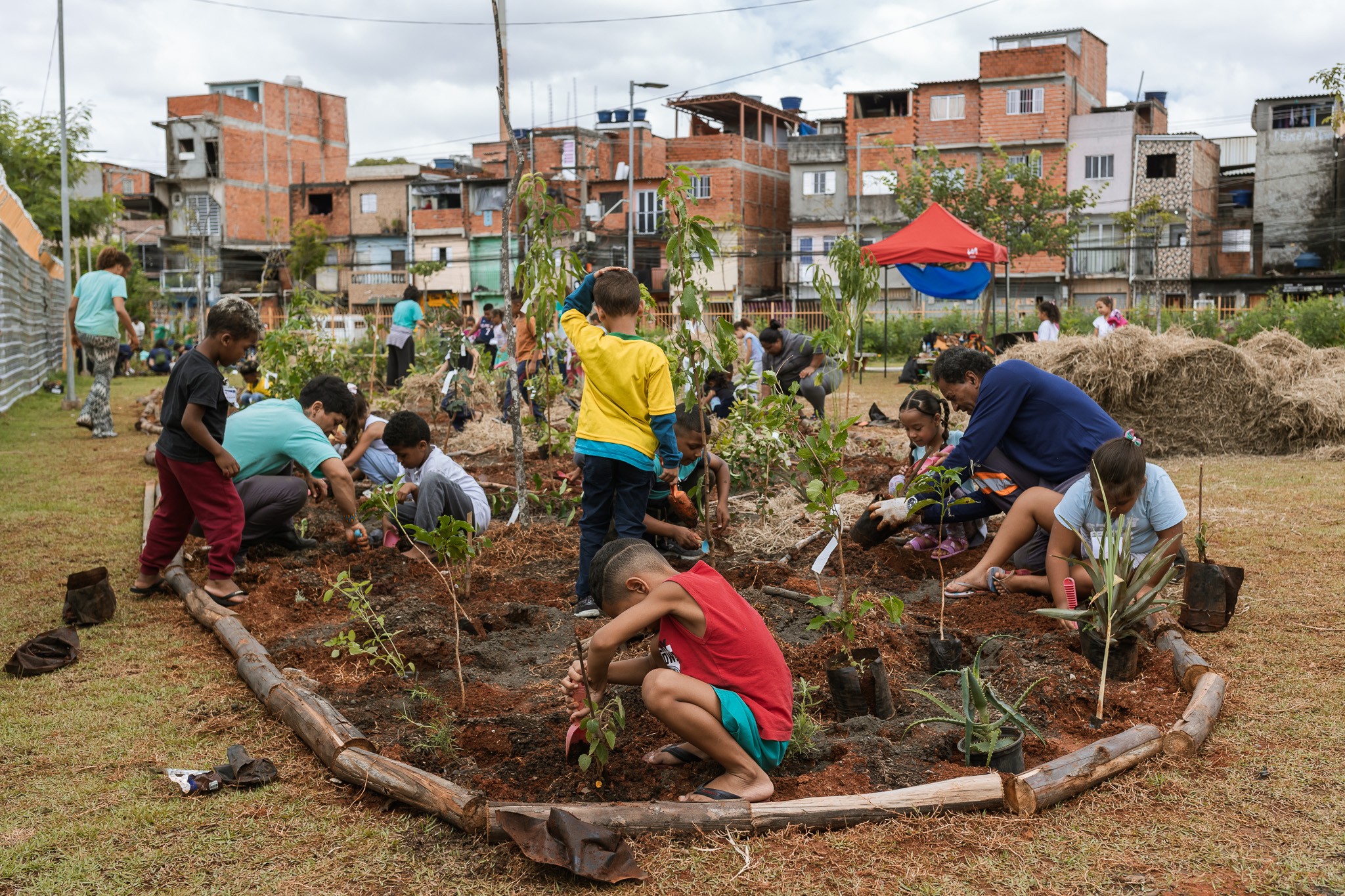

“It will bring back knowledge about the native Atlantic Forest and other species usually present in Brazilians' diets. It is a unique way to act in reforestation, conserving biodiversity, and providing food security, while contributing to the creation of generations who will be able to be part of the regeneration of the planet.”
Team formigas-de-embaúba
Planting
CEU Parque Novo Mundo
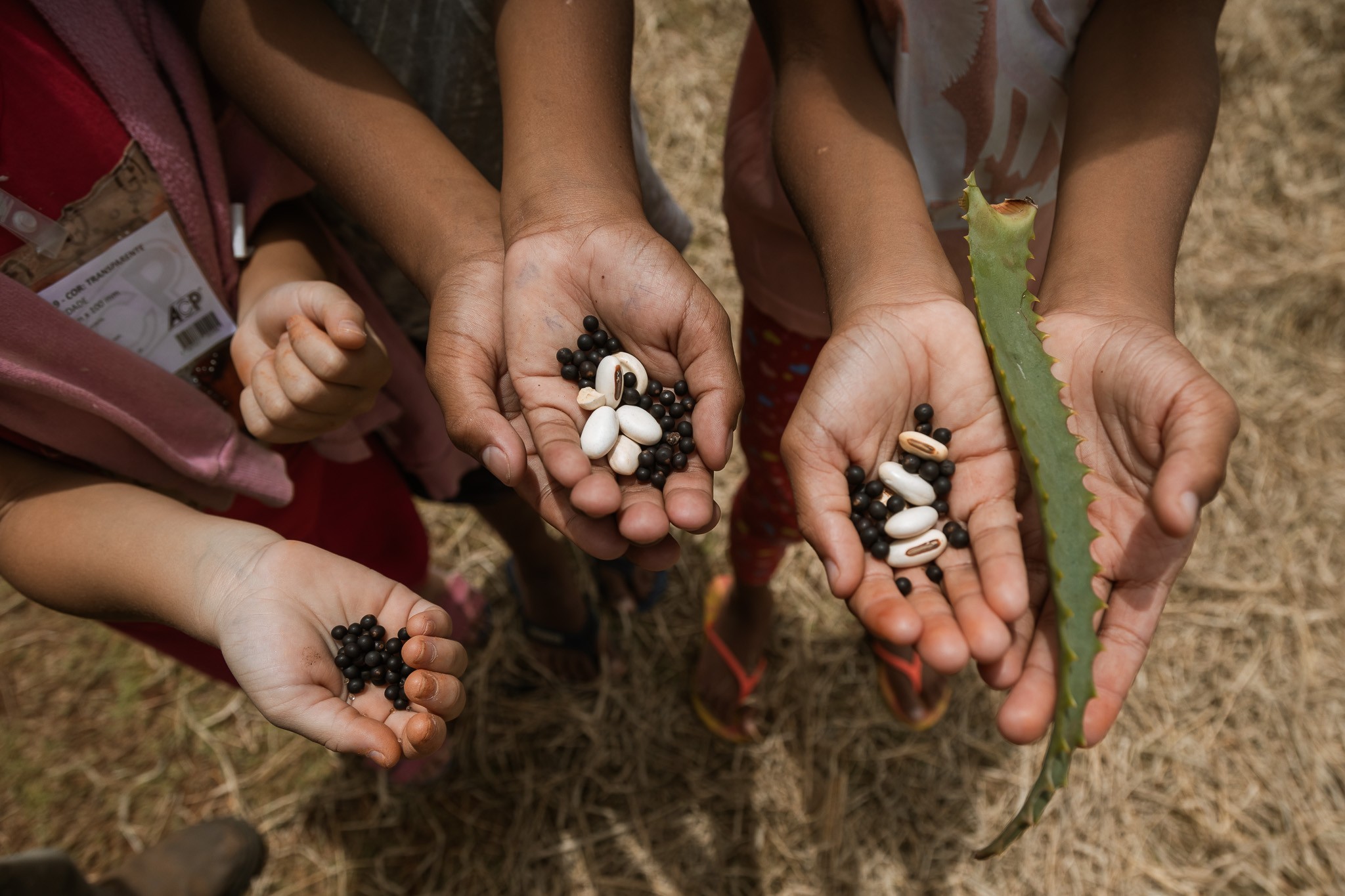
CEU José Bonifácio
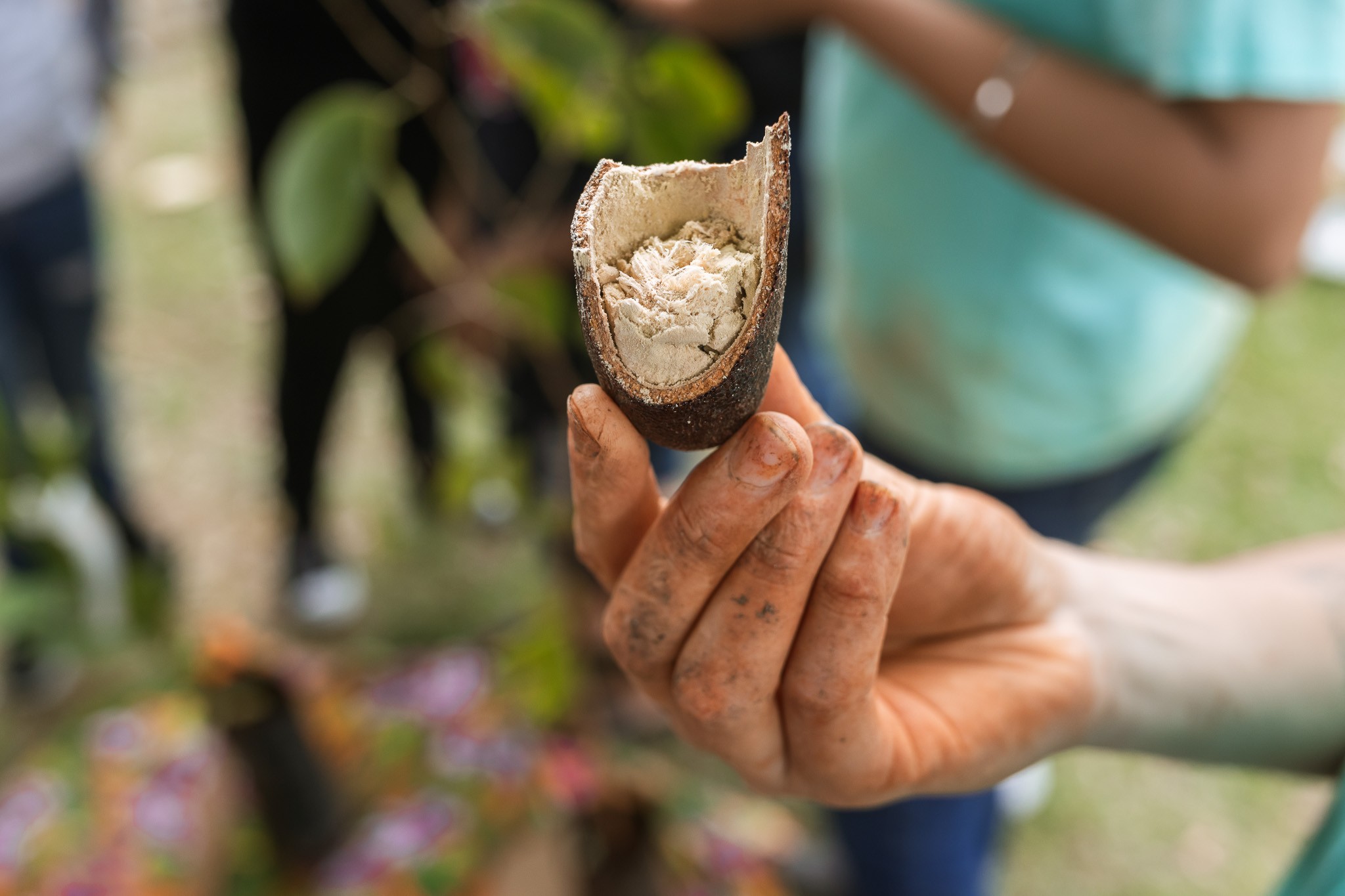
CEU Alto Alegre
